14th November 2021
The Spokesmen Cycling Podcast
EPISODE 286: COP26 SPECIAL — The Transition to Zero Cars
SPONSOR: Jenson USA
HOST: Carlton Reid
GUESTS: US Congressman Earl Blumenauer of Oregon; Greater Manchester’s transport commissioner Chris Boardman and the city region’s mayor Andy Burnham; the UCI’s Advocacy and Development Manager Isabella Burczak; Susan Claris and Stephen Edwards of Living Streets; Ed Miliband, UK Shadow Secretary of State for Business, Energy and Industrial Strategy; Mohamed Mezghani, Secretary-General of the global public transit organization UITP; European Cyclists’ Federation president Henk Swarttouw; Heather Thompson, CEO of the New-York-based Institute for Transportation and Development Policy; Bronwen Thornton, chief executive of pedestrian organization Walk 21 and European Cyclists’ Federation CEO Jill Warren.
TOPICS: COP26, cycling, walking, transit and electric cars.
LINKS: Forbes article
TRANSCRIPT
Carlton Reid 0:14
Welcome to Episode 286 of the Spokesmen cycling podcast. This show was engineered on Sunday 14th of November 2021.
David Bernstein 0:25
The Spokesmen cycling roundtable podcast is brought to you by Jenson USA, Jenson USA where you will find a great selection of products at unbeatable prices with unparalleled customer service. Check them out at Jensonusa.com/thespokesmen. Hey everybody, it’s David from the Fredcast. And of course, I’m one of the hosts and producers of The spokesmen cycling roundtable podcast since 2006. For shownotes links and other information check out our website at the-spokesmen.com.
Omnia El Omrani, Global Youth Coalition for Road Safety’ 1:04
Your Excellencies honourable delegates youth advocates. Today marks the launch of the Glasgow Declaration on the Acceleration of the Transition to Zero Cars and Emissions.
Carlton Reid 1:17
Transition to zero cars? Hey, that wonderful mistake was heard by the negotiators, delegates and VIPs attending the main plenary session on transport day at COP 26 in Glasgow, and I was there too. I’m Carlton Reid. And of course the Egyptian Doctor charged with welcoming folks into the cavernous room meant to plug the Glasgow Declaration on Accelerating the Transition to 100% Zero Emission Cars and Vans. But I don’t suppose many people notices the omission. Or should that be emission? Anyway, the room was packed with politicians and representatives from car manufacturers such as execs from Ford, GM, and Volvo. But do you know who wasn’t there? Execs from bicycle or train companies or execs from walking, cycling and transit organisations? Shockingly, the COP26 transport day focused almost wholly on electric cars and trucks. Cycling, walking and travelling on trains and buses were climate-friendly forms of transport that were not on the agenda excluded from the high level discussions. However, pretty much as an afterthought, a line on active travel and transit was tacked on to the end of the the Glasgow declaration — that long thing that I said before — But you’ve got to wonder what the UN and the UK Government were thinking when they listed the priorities for this 26th Conference of the Parties. As the Intergovernmental Panel on Climate Change said in its recent report, we have to reduce motoring, and boost bicycling, walking and other climate friendly modes of transport. Instead, as you’ll hear, a bunch of car execs were allowed to yap on about how apparently they will save the planet by selling people loads of shiny new cars. Now, this is a long show a touch under two hours. But I wanted to pack everything into the same episode and it really is packed. I shoved my microphone under the noses of loads of people in the badge-only zone at COP26 and at a UCI event in the centre of Glasgow. Next year, Glasgow of course, is going to be hosting pretty much every … in fact every World Championship event from the UCI so you’ll hear from US Congressman Earl Blumenauer of Oregon, Greater Manchester’s transport Commissioner Chris Boardman and the city region’s Mayor Andy Burnham, the UCI’s advocacy and development manager, Isabella Burczak, Susan Claris and Steven Edwards of Living Streets. Ed Miliband, UK shadow Secretary of State for business energy and industrial strategy and a recent convert to cycling. Mohamed Mezghanii, Secretary General of the global public transit organisation UITP founded in 1895 It’s quite a long one that one; European Cyclists’ Federation President Henk Swarttouw; Heather Thompson, CEO of The New-York-based Institute for Transportation and Development Policy; Bronwen Thornton, Chief Executive of pedestrian organisation Walk 21. And last but not least, the European Cyclists’ Federation CEO, Jill Warren. First, let’s hear what the car executives were allowed to say when they spoke at the transport days plenary session. Up first is Kristen Siemen Chief Sustainability Officer, [cough, cough] excuse me, for General Motors. Then there’s Hakan Samuelssonn, CEO of Volvo cars. And last is Ford’s Global Director, Cynthia Williams.
Kristen Siemen, GM 5:25
So at GM, we see a world of all electric, where everyone can be part of it, and everyone can enjoy the benefits of an electric vehicle. For us, that means a portfolio of vehicles that crosses every segment and every price point. It’s about having infrastructure and access to charging for everyone. It’s about equitable time at actions so that communities that traditionally have been left behind or disproportionately affected by climate change, are really coming along on that transformation with us.
Hakan Samuelsson, Volvo 6:03
We should also create more attractive products for our consumers, because then the process will be accelerated. And then consumers like electric cars. So, so I think we have come to a point where we should stop in discussing and trying to find other solutions. I mean, the grass is not greener. On the other side, it’s very green on this side. And I think it’s a great opportunity for for the core industry in, in Europe, and for sure, we have come to the mindset, it’s great for our company, this is an opportunity. And and it makes our company is stronger, and we can deliver products, consumers, specially future consumers will love to buy.
Cynthia Williams, Ford 6:56
For Ford, we not only want to build high quality vehicles at scale, but we want to do so in a way that it saves, um. It’s good for the planet, and it’s good for the environment. I think, from an automotive perspective, being able to scale up and bring vehicles at scale that’s needed. Now we need to match our ambitions with our actions. And so to be that’s going to be key for all automotive manufacturers to do so. Moving forward, I think key things that we will need to move this to accelerate the electrification revolution is to continue. We need incentives, incentives are required in order to bring the cost down. And so that we can get more people into the vehicles. It’s keen to leave no one behind. We need infrastructure. We need infrastructure, infrastructure, infrastructure. People need to see infrastructure in order to get in the vehicles and feel comfortable that they can get from point A to point B with no issues.
Carlton Reid 8:05
Are you as staggered as I am that a bunch of car bosses were allowed to pitch for sales at a climate summit? And brazenly say they’ll also need consumers to be given incentives — big fat subsidies then — and, said Ford’s Cynthia Williams there at the end, it should be down to governments to build infrastructure, infrastructure, infrastructure, in other words, recharging networks. Really, did governments build gas filling stations? No, they did not. And no doubt car companies also want governments to build more road infrastructure.
Carlton Reid 8:45
Funny how car companies and the politicians that support them come over all socialist when it suits them. Remember, this wasn’t a car conference. This was supposed to be a climate summit. Can you tell I’m angry? Anyway … breathe … I’ll calm down by setting up the audio I recorded with politicians and the bike, walk and public transit execs who weren’t invited to speak in the plenary session, but wandered the halls at COP26 anyway. Wwe’ll start with Congressman Earl Blumenauer. Yes, he gave me a bike icon badge. He’s famous for that. And we’ll end with Jill Warren of the European Cyclists’ Federation. So the agenda the top agenda is just electric cars bicycles are missing. what’s what?
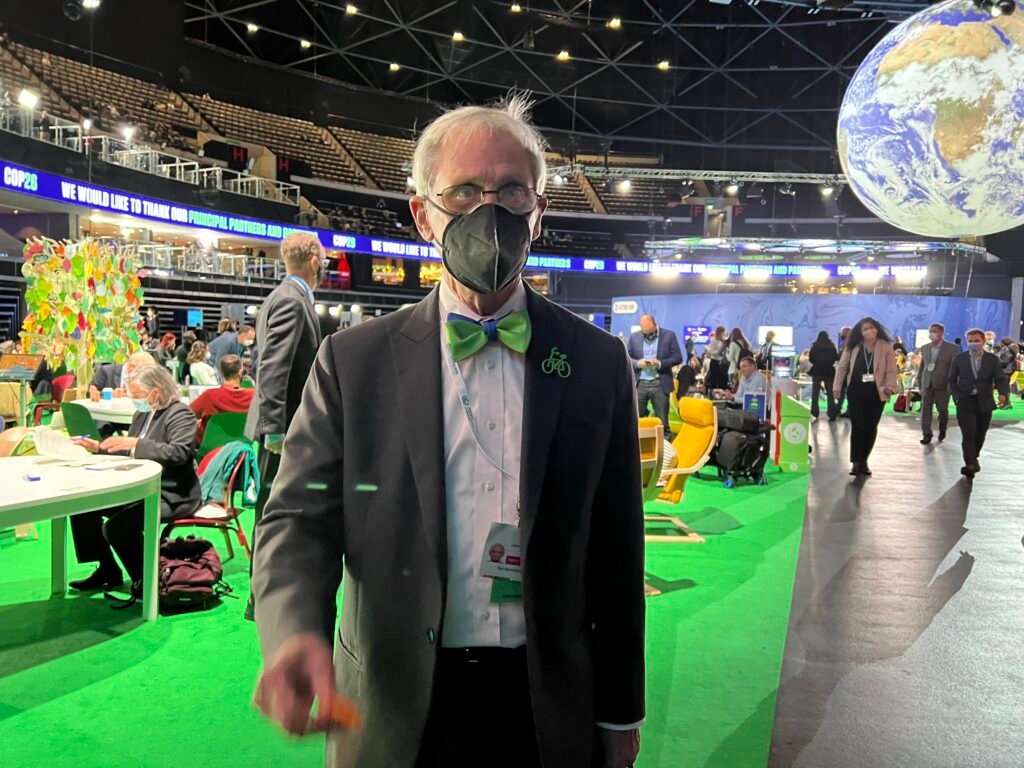
Congressman Earl Blumenauer 9:39
Well, that’s not what we do. We’re the US Congress. Our agenda includes electric bikes, and changing policies that are more supportive of cycling, burn calories instead of fossil fuel.
Carlton Reid 9:57
So do you think that’s a huge omission? Got cycling and walking and buses on the agenda here?
Congressman Earl Blumenauer 10:05
Absolutely. Land use, cycling, biking, you know burning calories instead of fossil fuel needs to have more of a focus on.
Carlton Reid 10:16
Okay. So why do you think it is missing?
Congressman Earl Blumenauer 10:20
I think others were more organised.
Carlton Reid 10:23
So the motor lobby is it’s got more money, it’s more organised?
Congressman Earl Blumenauer 10:26
It’s it’s the, the electric cars the new shiny thing which can be transformative and there’s massive investments in it.
Carlton Reid 10:38
As you can maybe tell, that was a grab and go interview with the US congressman for Oregon. I had to catch the politicians as they were passing. But I also set up some interviews such as this one with Chris Boardman, British Cycling’s policy advisor, who also happens to be Greater Manchester’s transport Commissioner. I saw Chris in the badge only Blue Zone at COP26, but didn’t manage to grab him there. Instead, I had to wait until after he had given an inspirational speech at a joint Visit Scotland and UCI event away from the COP26 venue. The UCI of course, is the Union Cycliste Internationale. And the event was a promotion called the Power of the Bike. Here’s Chris. How crazy is it? How bonkers is it? That cycling and walking and buses and trains? Yeah, great event here. But it’s not on the official agenda that the being discussed over the over the road. So how crazy is that?
Chris Boardman 11:45
Yes, it is. Yes, it is. I think it’s not in people’s psyche mainstream as yet. But we’re forcing it in them and had a conversation not an hour ago with Pete Buttigieg.
Carlton Reid 11:56
Yeah, yeah.
Chris Boardman 11:58
Struggle with that about exactly that and saying that him you know, the Secretary of State for Transport America riding a bike, the impact that has when you normalise something that isn’t currently normal, is essential. And he was talking about his boss, liking riding a bike. And that’s what’s needed. And regardless of whatever orbits around it, and the Prime Minister of the UK likes bikes at the moment, and there is the opportunity to actually do something with it.
Carlton Reid 12:23
But it’s still not on the agenda. So Boris likes bikes. Pete likes bikes, Biden likes bikes, but it’s not on the agenda.
Chris Boardman 12:31
It’s not here, but it is on the agenda, you will have read Build Back Better and Gear Change, I’m looking at funding bids and the criteria for submissions. And they all say, and you cannot hide money for bosses. If you don’t deliver active travel, you kind of have one at the expense of the other. And what we’ll find out in the next few few months, is whether the government will hold their ground. And that’s all I have to do. They’ve written a policy, it’s solid, it’s evidence, it’s joined up. And now they have to stand the ground and deliver. And if they do that, we’re living in a step change moment.
Carlton Reid 13:04
So you’re obviously you came into this, as you said in the in the talk there from the sport of cycling, but then became walking and cycling commissioner. And now you’re everything like a rush. But now you’re everything you every form of transport. So I can’t ask you to disciform a form of transport because you cover all of it. But the focus here, the focus here, Chris is on electric — or sorry, here as in not here, as in this building. But here as in COP26 is on electric cars. So how great are electric cars, they’re getting us out of the climate crisis,
Chris Boardman 13:38
I took this job, because the connectivity is critical. So we know that everybody switching from normal cars to electric cars, doesn’t doesn’t do it. In fact, in the short term, it makes it worse because you’ve got to make electric cars and you’re not ready to produce that much electricity and everything else. But it’s it is part of the search. And it’s not as big as part of people think it is. But it’s essential. But you’re about to change fuel, and where the fuel is, and how much there is of it. And if you do that strategically, at the same time you give people a viable, attractive alternative, then then you have an opportunity to really make a difference. So lots of families now are moving to you know, tiny house but three cars, when you can enable them to move to just one car families and down dramatically and have car clubs that genuinely work that are within two to 300 metres at someone’s house, or just open the car with an app. I go and use it for what I want. And I drop it in a space. I’ve just been speaking to the former Deputy Mayor for transport of Amsterdam now mayor have interacted Sharon, I was telling me how she took 1000 car parking spaces out in Amsterdam. And but if you use one of the car clubs, you can park for free. So it encourages people to leave their own cars not to use them if you’ve got to use a car. So she uses an electric bike most of the time, and then and then mixes and matches I think tying into the rest of the transport world is absolutely critical.
Carlton Reid 15:04
So when you’re speaking to Secretary Pete, Mayor Pete were you talking about active travel with him? Was he on message there?
Chris Boardman 15:13
I was talking specifically and only about active travel. And we only had a few minutes. But that was the topic that we were talking about. That was our common ground. And we started talking a little bit about how you’re going to charge for electric vehicles. So you’re not just getting just got free motoring, which they’ve got to do. Because they’re about to have a hole in the tax revenue as well. And the whole world’s got to tackle it. So it’s, it’s an emotionally wrenching time, because we are on on the cusp of massive change, and we could genuinely get it. But it’s not locked down. And it’s not sir. And I think it’s fascinating to be involved. Just very tiring.
Carlton Reid 15:51
Here’s a walk and talk with Andy Burnham Greater Manchester’s mayor. So transport da, Andy. It’s, it’s Car, car car, blah, blah, blah. So that’s not going to solve the crisis, not gonna solve congestion, it’s not going to solve lots of things. So why do you think the government who set the agenda and the UN, why have they gone for car car car?
Andy Burnham 16:18
I did say this to them this coal car, cars cash tree, I said that before, cuz I’m not sure that’s the right, the right sort of framing for this, we should all be talking about public transport. So surely reducing the cost of bus fares rail fares. And actually, if anything, increasing the cost of fares, you know, it’s, it’s the case that it’s much cheaper to get a plane than it is to get a train in this country. And until that’s changed, the economics of this are not going to be in the right in the right place.
Carlton Reid 16:49
So do you think leaders such as yourself, who are doing this, who are well ahead of the curve, considering? It’s not here? Do you think you city leaders, not just you, but all across the UK, and of course, all the mayors that you you meet with frequently? Have they the ones that actually got a bit more power anyway, so they’ll just they’ll just go ahead with with that kind of agenda?
Andy Burnham 17:14
Yes, but we do need the government to support us, we have the possibility of creating within a decade, the UK is first carbon neutral public transport system, our trams already run on renewable energy. And we have a plan to electrify buses now and make them effectively a single a single system. But to do that, it requires the government to step in as well and back us with funding to deliver that system to that to that timeframe. So for me, it’s like, it’s a bit frustrating, because we’ve got the plans, we’ve done the thinking, we’ve done the work, we’ve put buses back on the public control. And that’s a key enabler. Because when you control transport, you can actually then dictate the pace of change in the coming years. So we’ve done all of that. And we’re kind of just waiting to go really. But you know, this is where the government needs to needs to see how Net Zero is also levelling up, you know, they want to level up the country, well, you can make the one on the same thing, you know, you can change great sponsors, public transport system, make it carbon neutral, but actually make it much more affordable for people to use as well. And that’s where these agendas can come together.
Carlton Reid 18:26
And how important is it that you’ve got somebody like Chris Boardman as not just the bike and walk Commissioner, but transport Commissioner, what does that say about your agenda? Well, hopefully
Andy Burnham 18:37
what it says to people is, what’s the message I wanted to send when I asked Chris to take on the broader role that the active travel cycling walking is, is kind of baked into this system, it’s almost the foundation of a modern public transport system. It’s sending the message that, you know, walking or cycling is the natural choice for the first mile last mile, but then you can get on a bus that’s hopefully better and cheaper, and connect with the tram and do your commute in that way. Chris, and I took a commute on Monday morning, actually, using an electric boss and then jumping on one of our new bike, hire bikes. And you know, it was a zero carbon commute, so it can be done.
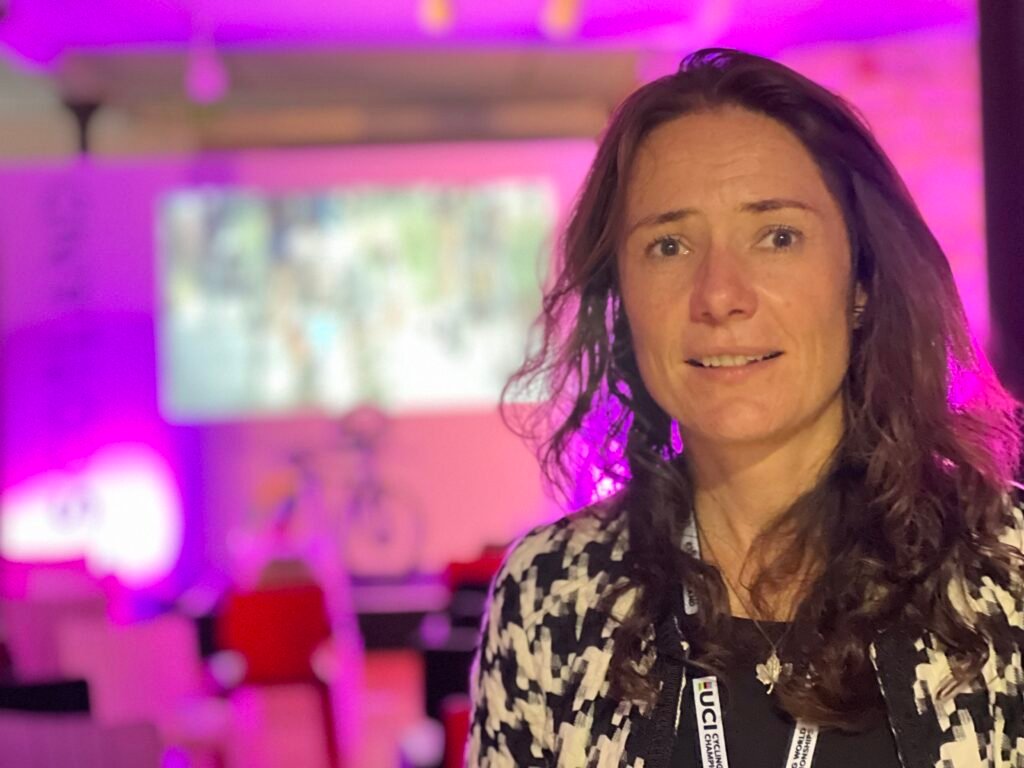
Isabella Burczak 19:14
So my name is Isabella Burczak, I’m the Advocacy and Development Manager at UCI, ….
Carlton Reid 19:22
So I’ve had a fascinating afternoon, here, outside of COP26. So about a mile and a half away from where the the actual conference is taking place. So tell me exactly what the UCI event has been doing here today. Yeah, so
Isabella Burczak 19:40
the goal of today’s event, which was I mean, I really have to do like kudos to the 2023 World Championships team. And so the idea of this event was to talk about I said, they said the power of the bike, but really how do sporting events, transform cities? How can they bring sustainable development How can they bring that into the community? And then how can cycling also transform cities.
Carlton Reid 20:05
That’s not long to do
Isabella Burczak 20:06
that. Yeah, it’s coming up very quickly. So maybe just in terms of context, so the 2023 World Championships are the first time we’re bringing all the disciplines together into one cycling world championships. So it’s really no bringing 13 World Championships into one into one region because it will be in Glasgow but also in other cities within Scotland. So it’s very much a Glasgow and Scotland effort here. And the idea of the championships actually, so one is hosting the actual event and hosting the 13 World Championships. But actually, there’s a much bigger objective to it. So the bigger objective is actually to transform the nation with cycling. So how can they create infrastructures? How can they create a cycling culture? And how can they use the event to inspire a whole new generation of cyclists that use the bicycle for every reason, so they won’t necessarily be the next, you know, lycra clad cyclists on the street, or they might not be the next world champion, but they may be the next parent that takes the kids to school on a bike or they might be. So really, it’s really encouraging something on an everyday basis.
Carlton Reid 21:09
So I’m sure this this criticism, you’ll have heard many, many times. But when you broach those kinds of ideas, people on social media and elsewhere will say, Well, you don’t promote driving, by getting Formula One noticeboard involved. You don’t basically you have transport, you don’t have sport. So why is cycling different there? Why do you think the sport can influence the transport?
Isabella Burczak 21:38
Yeah, so funnily enough, my, I’d say what I always say is we have this responsibility, within kind of a Global Cycling agenda to promote a sport, which is also a form of transport. So we can’t just focus on the sport. And the idea is, no, if people are afraid to put their kids on bikes on the street, we’re also not going to have future world champions, because there will be athletes coming up and, and riders growing up as riders, but also, between sport and transport, I find there’s also very common agendas. We all want safe roads, we all want education, we want to share best practices. We want cycling to grow within all countries. So whether you’re a writer racing and training, and we heard this in the room, actually, there was a comment from a rider that said that he’s afraid to cycle as a mode of transport
Carlton Reid 22:30
pump track champion, in fact, not just a rider, just like a champion rider.
Isabella Burczak 22:33
Exactly. So I would say the road safety agenda is a huge agenda also touches upon infrastructure. So how do you get more people riding? Or at least how do you decrease the perceived notion of cycling not being safe, because that’s usually the and it was brought up by Hank as well. People don’t take hold because they think it’s unsafe. So we need to create conditions for them to feel safe. So we need to create the infrastructures, but we also need to create a culture. So again, it goes kind of much broader than just bringing in the infrastructures. Yes, that helps, definitely. But we do need to focus on other topics that will also create a culture of cycling within a country. And that’s where really, I would say that UCI steps in to say, Well, we are hosting these events. So saying we’re hosting a world championship and even outside of 2023, we’re hosting an event we’re using money from the government, if private public funding. Well, we also have an opportunity and a responsibility to get more people writing as well. So how can how can we cities that are hosting events then kind of work with the government’s work with tourism boards work with schools to bring more cycling on an everyday basis. And that’s where we get involved in why we’re trying to bridge those two, to three worlds.
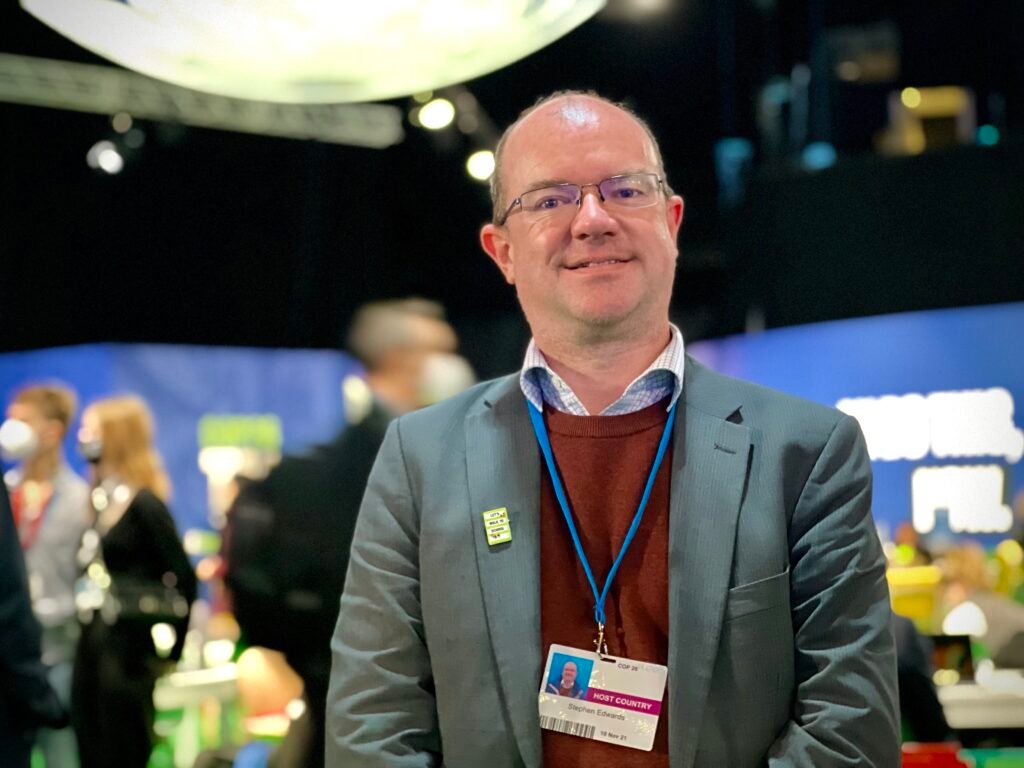
Stephen Edwards 23:48
So my name is Stephen Edwards, Interim Chief Executive, Living Streets and we’re the UK charity for everyday walking. So we want more people to walk their everyday journeys. And we want a street environment that is fit for walking.
Carlton Reid 24:03
And that’s the organisation that was founded the 1920s as we were founded
Stephen Edwards 24:07
in 1929, as the pedestrian Association, and we’re very true to our campaigning routes. And
Carlton Reid 24:13
‘Murder Most Foul’ you’re famous for back then. Keep the death machines off the street. I always radical.
Stephen Edwards 24:20
So we we were very focused, but then on sort of looking at things that were getting in the way pedestrian safety. So we were behind the first zebra crossings. In the UK, we were behind the first speed limits in the UK, and we were behind the first Highway Code, as well. And if you look at the kind of things we’re campaigning on today, so we’ve been campaigning, only this year on revisions to the highway code to put pedestrians first at the top of the hierarchy of transport. We’ve been campaigning on crossings to get more crossings and better crossings. So yeah, we’re we’re still doing much of that campaigning work. We’re also doing much much more as well. Working with the UK Government working with local authorities as well to kind of deliver the change on a street by street basis to,
Carlton Reid 25:09
and you’re not here by yourself.
Stephen Edwards 25:10
I’m not here by myself. I’m with Susan, who I will pass.
Stephen Edwards 25:10
I’m not here by myself. I’m with Susan, who I will pass.
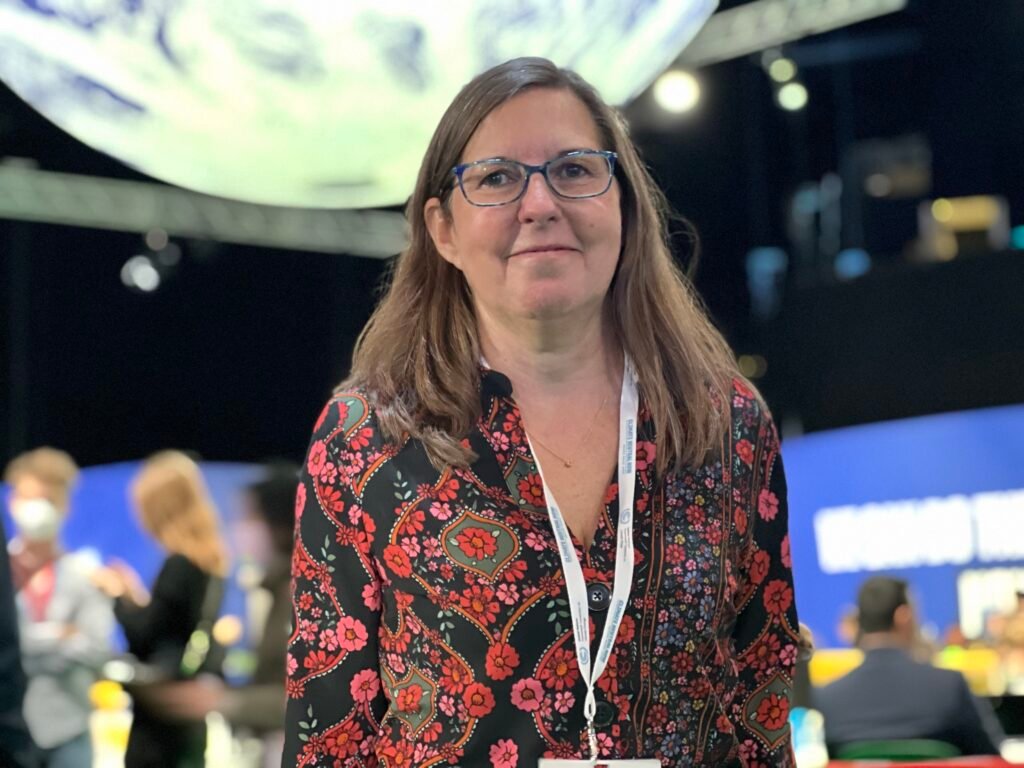
Susan Claris 25:15
Hello. So I’m Susan Claris. I’m the Vice President of Living Streets, the UK charity for everyday walking. I’m also a trustee at the charity and I’m a transport planner by profession with Arup where I lead on active travel, but particularly with a focus on walking, because the tendency is is that cycling dominates discussions about active travel. But with almost one in three trips in England being done by walking walking needs to have more of a voice, it needs to have more attention. It needs to receive more more priority because of the massive benefits that it can bring. Yes, decarbonisation, which is what we’re talking about here today. But the session we did earlier was about the wider benefits. So looking at the health benefits, physical health benefits, mental health benefits, the social inclusion aspects of it, the economic benefits, very clear focus on air quality. So really how walking in particular can bring about healthier people, better places, and a better planet.
Carlton Reid 26:14
Chris Boardman was at your event. So he’s, in many people’s eyes, a cyclist. But he’s much more than that, as we all know. So he is a great advocate for for walking, frequently said, you know, that should absolutely be at the top of everybody’s agenda, and then cycling and then we’ve moved, etc, etc. Because he’s the transport Commissioner for Manchester, not the cycling and walking Commissioner anymore. The transport committee. So how significant is a figure like Chris, and getting across the agenda, which we’ve just been discussing,
Susan Claris 26:55
hugely important. And I think that’s a really positive step that the UK has taken in the last few years is to have what started off as cycling commissioners then emerged into walking and cycling commissioners, or active travel commissioners. And I think it’s a really powerful thing. I think it’s important that they’re not associated too much with sport, because a lot of them come from sporting backgrounds. And we need to get away from the fact that active travel is small, and you have to be fit to walk, walk and cycle. Well, Norman, I think does a great job. He always talks about walking before he talks about cycling, and he doesn’t have that legacy of a sporting background, I guess. But I think having that that local focus or that regional focus, and someone who is there every stage to say, What about walking? What about cycling, because too often, authorities are siloed. And decisions are taken about health or about education, or about older age and transport isn’t considered so to have someone who has a voice, and who is well known as well to keep on saying, but yeah, and walking and cycling is a really important thing. So I think it’s it’s a massively important step forward, to have the have the active travel commissioners.
Stephen Edwards 28:04
Just to add to that, Chris gets walking as well as cycling. I think from our perspective, generally speaking, what is good for cycling is good for walking as well. But ultimately, walkers have secular needs. And there are too many people that aren’t thinking about what a walking network looks like in classes, thinking about what a walking network looks like, putting in place proper crossings, making sure pavements are wide enough and accessible for it accessible by everyone. Regardless of age, ability, you need that space for walking in, you need to know you’re safe, and are going to risk your life when you’re out on the streets.
Carlton Reid 28:42
If we can take it back to you because with your transport planners hat on. And basically what that boils down to what Stephen was actually saying that with networks, do transport planners, you’re gonna have to take on the whole of your profession here. Do transport planners get that cycling is I’m sorry, that walking is a form of transport.
Susan Claris 29:08
And some do and some don’t. And, you know, there’s a learning job to do I think in terms of raising the profile of walking both amongst my colleagues and you know, other professionals. You know, the people who are working in transport now were educated 20 3040 years ago, when I did my degree back in the late 80s, early 90s. Walking wasn’t part of it cycling wasn’t even part of it. You know, I did a master’s in transport and walking and cycling didn’t really feature and we’ve got the legacy of people who have gone through that education system working now. I think the people who are graduated that graduates I see it work who join us now as transport planners, all they want to work on is active travel. So you’ve got a generation coming through who have who have got this, and I think we’re now coping with the legacy of the generation that weren’t brought up with it, but that’s no nothing to say that they can’t actually Get it now for me, active travel is as much a way of thinking as it is to do with design. And it is about always starting with putting walking first, in public transport, it’s about thinking about the whole journey from someone’s home to their destination, not from the bus stop or actually on the bus to where they get off the bus. And, you know, the power of walking for me is, you know, the importance of it as a mode in its own right. But also every other mode will involve walking at some point. So, you know, walking, I think is fundamental to transport planning. And we are seeing a shift. When I joined Eric back in 1993, you know, it was pretend to be a traffic engineer. The fact that I had a background in planning and anthropology was a bit of an oddity, whereas now things like that are welcomed, and it’s transport planning, it isn’t traffic engineering. So we’ve seen a big shift in the profession, I think, in the nearly 40 years, I’ve been working in transport, I think now we need to broaden it. So we have more focus on inclusion, you know, there’s been too much designing for a mythical average, which doesn’t actually exist. And we need to think about how cycling can be for everyone how walking can be for everyone. And that’s what we need. That’s the focus now, and again, I think some people get that for some people, you know, it’s it’s hard to design outside your own experience. And too many people plan for what they know. Because it’s hard to know how an older person might experience the built environment, how someone with mental health conditions finds travelling on transport. And what we need to do is, is to have more, a more inclusive approach to transport to take on board Everybody’s used so that we do end up with our streets and our towns and our cities that are actually for everybody not designed for an average.
Carlton Reid 31:39
So I’m going to ask us to Steven, but I’m probably going to come straight back to you anyway. Or you’re gonna you’re gonna grab the microphone off Steven and say, I want to say something here as well. So I hear what you’re saying. Both of you have both said, that’s really that site, walking is here. Can I go like I’m deciding, you can see where my bias comes from. And I’m walking, but also cycling, and buses and trains are not here. So that’s my stick. That’s that’s the big thing that I’m I’m hitting people with. So yes, you have an event here. And you’ve got Chris there, that’s fantastic. But you’re not on the agenda. So there’s an overarching agenda there, which is a little bit of aviation, a little bit of shipping. That had been announcements the today. But then probably 90% of the transport element. The top level, the high level agenda is not walking is not cycling, is not versus not public transport, it is electric cars. And that’s pretty much that’s feeding into bit electric trucks. It’s electric car. So it’s Car, car car, not blah, blah, blah. how annoyed Are you that you’re not at the top table, you’re way off in some annex.
Stephen Edwards 32:58
So I’ll respond specifically to the point on electric cars. And we’re really, really clear that Living Streets, the whilst electric cars have a role to play. They do not, it does not get away from the fact that you need to significantly reduce overall car use. And electric cars still contribute to air pollution for a particular matter. On tires and brakes, you need to worry about the source of the electricity for the cars in the first place. And of course, electric cars do nothing about the congestion. And the problem we have with road safety in this country were again, to Susan’s point on inclusivity. It’s the most vulnerable members in our society that are disproportionately represented in the KSI statistics we see on road safety from UK Government. So yes, electric cars, but even more, less driving altogether and more walking in cycling, especially for those shorter journeys, which is easy to complete by car by bike. By bike,
Carlton Reid 33:59
the IPCC report was very clear, you’ve got to reduce motoring. And yet this conference just has not had that if anything is complete opposite is no less let’s increase motoring but just have the tailpipe a bit different. So same question to you how annoyed Are you because that wasn’t very passionate. I need more passion here. It was good technical I agree with why isn’t walking cycling trains here
Susan Claris 34:29
what I mean walking cycling is here. We are in the blue zone. So on
Carlton Reid 34:34
the agenda, we’re not You’re not on that final agenda that’s going to get on all those news channels over there.
Susan Claris 34:40
But at least we are here we wouldn’t have been here at previous costs. So it is a step forward. Every pun intended that we are at least here and we are having these conversations not as mainstream as I would like to be. I think the whole avoid shift improve is not full is not understood and people don’t get it so people jump straight to the improve First of all, absolutely we need to avoid, we need to reduce the need for travel, then the shift and walking, cycling public transport, there’s not enough discussion of the avoid here. I absolutely agree with you. I think road pricing should be central to that. One of the things I talk about all the time is, is that we will never realise the full potential of walking and cycling unless we address transport gluttony, which I define as the overconsumption of transport to the detriment of others. So people travelling around in ever increasingly large SUVs, engine, idling, inappropriate speeds, pavement parking, not stopping a red light, all of those behaviours just detract from people walking and cycling. And it’s those we need to address. And they’re politically difficult to address, because it’s not the sort of things that voters want to hear. And I think in terms of why there isn’t a bigger voice, that’s up to all of us, it’s up to the public. And people don’t don’t care enough, or they’re not willing enough to actually have what they see as restrictions imposed on them because they see it as a negative. And I think we need to try and change the conversation around. So not to say that roads are closed, or you know, that you’re banning pavement parking. In some ways the focus should be on actually, you’re making sure that somebody with a double bogey or someone in a wheelchair, can walk or wheel down a street, and it should be focusing on the positive. So in some ways, yes, I am angry about it, because until we address the avoid, but we will you know it we will never get the improvements we should I think a parallel is you know, we talk about for waste, we talk about reduce, reuse, recycle. And the tendency is everybody jumps straight to the recycling and they do their bit of recycling and they think they’re fine. They’re saving the planet save the planet, because yeah, what about cardboard? Yeah, and it’s exactly the same with transport, you know, that same reduce, reduce, reuse, recycle is the same as the avoid shift improve. And it’s the same people who feel smug about doing their recycling, who probably feeling smug about driving an electric vehicle, because I think they’ve done their bit. And we need to get across the fact that actually the avoid is the most important, the improve is last resort.
Carlton Reid 37:04
I was sat working in the media centre at COP26, when at the corner of my eye, I saw a familiar figure. It was Ed Miliband, and I jumped up and grabbed him. So yesterday was the transport day. And the focus was almost totally on electric cars. Whereas you have said, in your book, and in interviews, that cycling is a major part and walking is a major part. And then buses. But COP26 only cars only talked about electric cars.
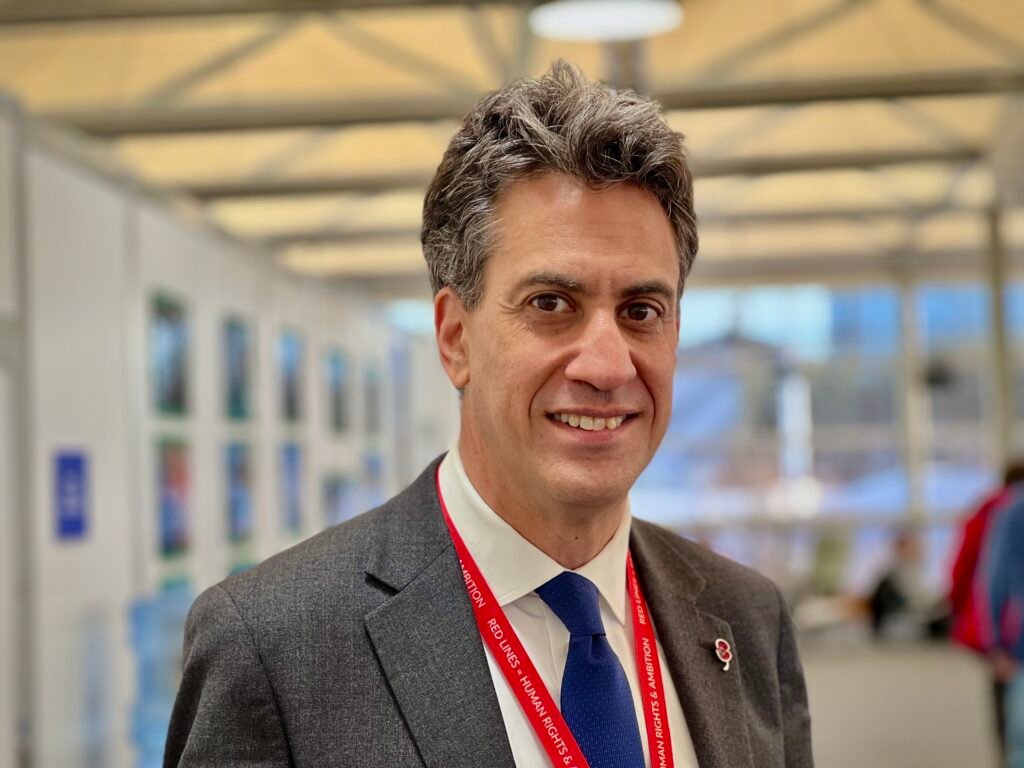
Ed Miliband 37:38
It’s a very very good point. I wasn’t focused enough on the transport stuff yesterday. But I think it’s incredibly important that as we think about the transition, the climate transition is not simply about replacing every petrol diesel car with an electric car, it’s got to be about walking and cycling, and decent public transport. Because, well, partly for sustainability reasons. But also, because you want you want to give people good alternatives. And you also want to create a kind of better society where people can walk and cycle with all the health benefits that gets and giving people those options. And I think that is really important. I mean, when you think about the UK, I think it’s incredibly important. On the public transport side. I you know, as a constituency MP for Doncaster, one of the biggest unaddressed sort of accident during somebody. One of the one of the biggest unaddressed issues is his bus services, his local bus services and the problem with local bus service is real missed opportunities that wasn’t addressed yesterday.
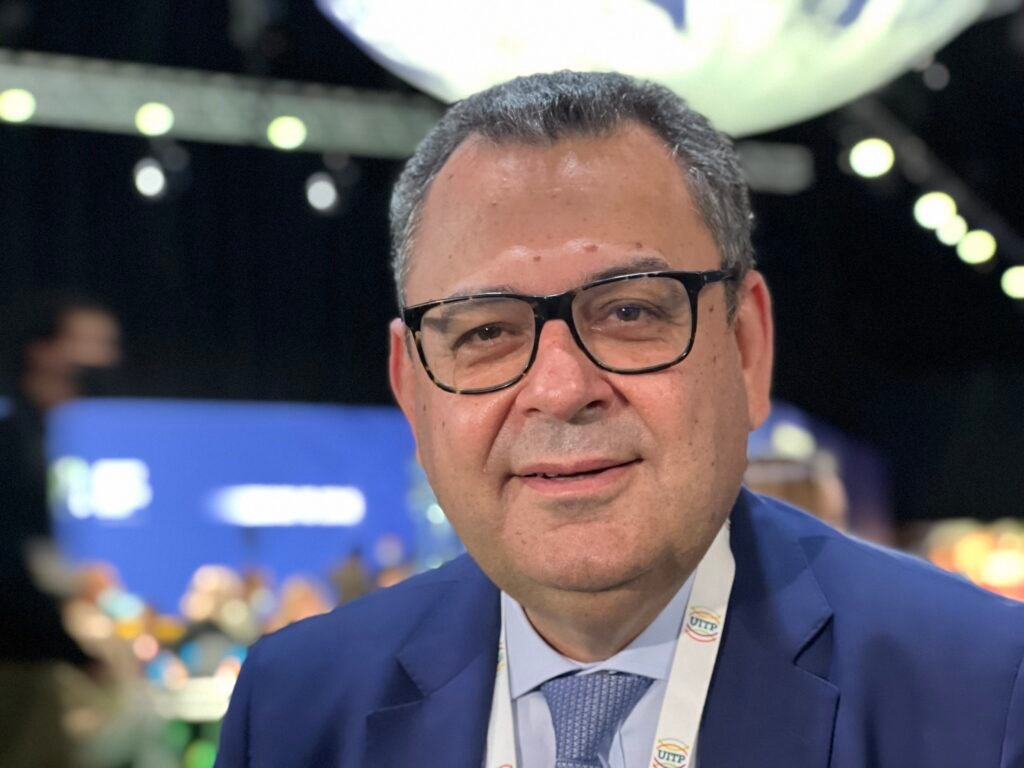
Mohamed Mezghani 38:46
Mohamed Mezghani, Secretary-General of UITP, the International Association of Public Transport.
Carlton Reid 38:53
It’s been going quite a while now, it’s not a new organisation, 1885?
Mohamed Mezghani 38:58
UITP is 156 years old.
Carlton Reid 39:00
And it was a tram organisation to begin?
Mohamed Mezghani 39:02
Yes, it was born as the European tramway association with the 60 members from nine countries, European countries and then then progressively became the Association for all public transport stakeholders and all modes of public transport in the city and not just mass transit modes but also on demand and shared mobility.
Carlton Reid 39:23
So this is a like the big bus companies the big train compnaies, they’re all members that you represent their interest among the members.
Mohamed Mezghani 39:31
We have 1900 members from 100 countries and our members are the public transport operators. So operating metros and buses and ferries in the in the cities. The authorities the regulators at national or local level means public entities, regulators, the supplying industry, so those manufacturing buses and trains and the IT system, the ticketing system consultants, the academics, and as I said, I mean it’s not just about Mass Transit is really including when I say operators, it’s also operators of bike sharing, car sharing, taxis, also part of UITP.
Carlton Reid 40:09
And I believe you’ve just come from a meeting with the World Health Organisation. So what we’re discussing with them because getting onto a bus isn’t really very healthy.
Mohamed Mezghani 40:18
We are discussing about how public transport contributes to better health because when people use public transport, first they woke compared to those who are using their cars. So it’s good for for health. But also, when you have 50 people in a bus, even if that bus looks maybe, like dirty bus, there are 50 50 people and so the emission per person is much lower than the 50 cars that are on the same road than that bus. So and, and it was interesting to see that the WHO ‘s considers really public transport as a way to improve health and as a way to reduce air pollution. And so that’s why we were having this meeting with them and to see how we can
Carlton Reid 41:09
Mohamed, you know, I know. But it’s not here. It’s not on the official agenda — public transport isn’t, cycling isn’t, walking isn’t, even trains are not on. So how surprised are you at that? And how disappointed are you in that?
Mohamed Mezghani 41:31
Look? I mean, I am disappointed than the positivity surprise at the same time. positively surprised, because when I see the where we were 10 years ago in the cup regarding transport, and how in 10 years ago, we had only two or three associations, or two not to say two or three people representing associations at the club. And when I see now that there are much more mobilisation, we have a transport day at the COP.
Carlton Reid 42:00
This is the first one isn’t it?
Mohamed Mezghani 42:01
Not the first one. Okay, but we have a transport day. And that’s a that’s important. So this is these are very positive developments. But at the same time, I’m disappointed because when I hear the conversation about transport, and yesterday, I was part of the ministerial meeting, Transport Minister meeting, when I hear the discussion is about connecting vehicles. It’s aviation. Yeah, it’s Yeah, but it’s more about electrification, but technology and not not about policies, not about how to give priorities to to the modes, which are less polluting, less emitting more socially inclusive, healthier, etc, etc. So So we still have to do a lot to convey our our message and to make the policymakers understand that public transport can contribute to this to the to fight climate change. And also, when we look to the the national plans, only 30% of them national climate plans, only 30% of them include public transport measures only 30%.
Carlton Reid 43:14
So I’m shaking my head.
Mohamed Mezghani 43:16
So our message is clear 100% of them, all of them must cover public transport. So this is the kind of message we we try to convey. And also now transport in general is representing 24%, more or less all the CO2 emissions in 2030, if we don’t act in 2030, it will be 40%. So and it’s the sector which is seeing its contribution, growing the fastest. So so it’s important that we acknowledge that.
Carlton Reid 43:53
Your organisation has signed the letter. We I think you’ve signed two letters, haven’t you with with the two organisations but the one I’m talking about is the European Cyclists’ Federation, which is now rather exploded, it’s lots of NGOs and organisations and charities have now signed that. So, you represent public transport. So, why why are you getting involved with with cycling?
Mohamed Mezghani 44:21
Because first we we consider cycling, walking and public transport as a green alliance as the really the alliance that will that will help and that not that will we will will make feasible, the reduction of CO2 emissions related to urban mobility. So, and that’s why we joined forces. That’s why we we shared with them a number of messages, a number of values, I would say that we try to promote so it’s not surprised for me it’s not surprised that we are we are coming indicating and together with the with the cyclists the Federation, because both modes are, are clean both modes are sustainable. And, and we would like also that people think door to door when they when their mobility and not just station to station. And so thinking door to door and we know that public transport is not a door to door mode. But if we joined forces with shared mobility with the on demand transport with cycling, then we can offer this and and people if they have a convenient door to door solution, they will not feel the need to own a car not just to use the car but to own a car.
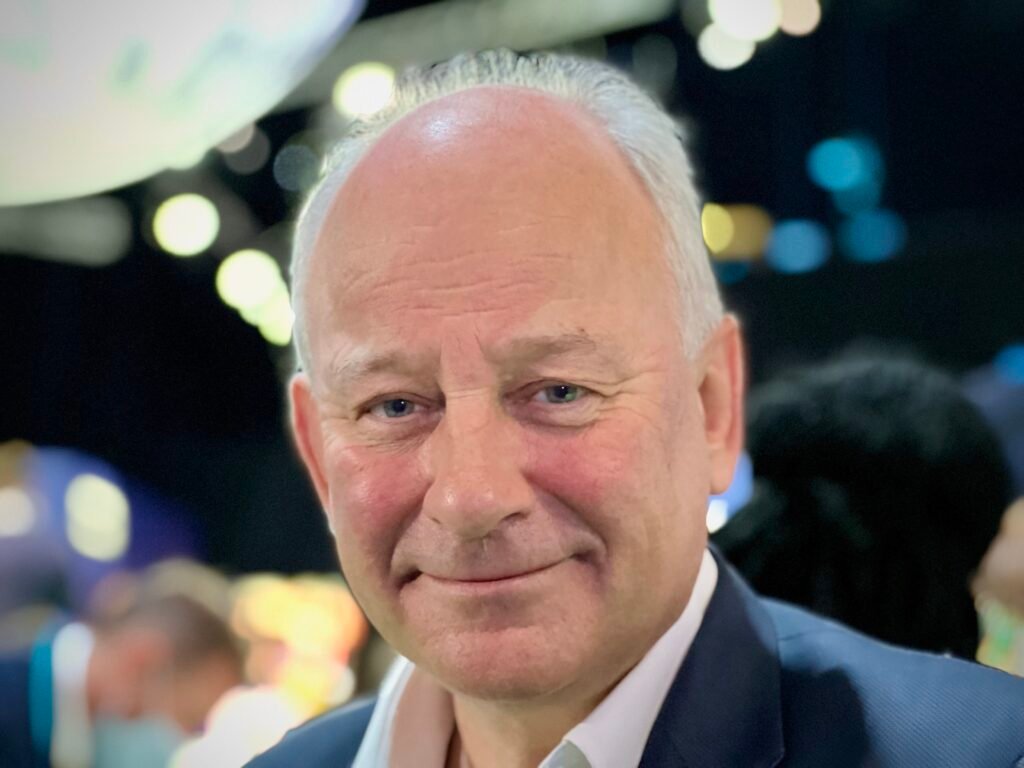
Henk Swarttouw 45:44
My name is Henk Swarttouw. I’m president of the European Cyclists’ Federation and of the World Cycling Alliance. The European Cyclists’ Federation is the European umbrella organisation of cyclists. And then I don’t mean racing cyclists, they are covered by the UCI, but everyday cyclists, leisure cyclists, people who use a bicycle, actually not cyclists, but people who ride bikes that would be a better a better name. But anyway, and World Cycling Alliance is the global alliance of organisations like ours, in people for bikes in North America, continental organisations in Latin America, Africa, South and East Asia and even Australia.
Carlton Reid 46:30
And we’re here at, we’re under the globe at COP26. But I know you’ve done a fantastic letter, which lots of organisations have said how many organisations and so we
Henk Swarttouw 46:41
are I don’t have the actual number because organisations are still signing up and can still sign up. But we are over 260
Carlton Reid 46:48
Yeah. Okay, so that’s a great letter. But it’s a protest letter, basically, because cycling isn’t here. Why isn’t it here? And how disappointed are you it’s not here?
Henk Swarttouw 47:03
Well, let’s start to say the second part of the question. First, we’re very disappointed, of course, because to us, it seems so obvious. And why it isn’t here. I can only guess because I haven’t asked the British presidency who has been setting the agenda. I mean, it’s go to transport day. This is the first time there’s a transport day at COP26. And yesterday, there was a meeting of transport ministers, which is also a first time first time for a COP.
Carlton Reid 47:34
But they’re not talking about cycling. Yeah, or walking or trains.
Henk Swarttouw 47:37
Indeed, and that’s all you need to ask them. But the problem is that cycling is not visible. It’s very visible. No, it’s it’s it’s it’s visible for you. It’s visible for me. It’s not visible for the people in the negotiating rooms. We are not allowed to bring a bicycle into the venue, as you are aware that a cyclist outside and they are showing that we’re here and that’s great. waving the placards or showing the bikes, but I was meaning more general not at COP. The cycle cycle. You know, a good example in London when pop-up bike lanes were introduced during the COVID pandemic. Lots of people complaining look, there’s a bike lane, it’s all empty. And that’s because a bike this takes so little space, it’s transparent, it’s hardly visible. Whereas a congested car lane is very visible. It’s clogged with cars. Has anybody ever asked why a railroad track is empty? 99% of the time? No, it’s a bit the same. The same, the same reason. The other thing is, of course that the economic ecosystem around a bike is so much smaller than the one around motorised vehicle called make money. That’s what he said you can make money but not as much. And there are not as many interests involved. There is no insurance sector there is much less maintenance, there’s no fuel, fossil fuels going into the car. The tires don’t have to be exchanged and checked as often as so around the car around alter mobility there is any gigantic ecosystem. And you know, as well as I do that, about 100 years ago, we took a wrong turn. And we adapted our cities our way of life to motorised transport. Before that. There were omnibuses, there were street cars, trims there were bicycles, people walking, pedestrians, and somehow 100 years ago, we took a wrong turn. And now we have to turn back but as 100 years of investment behind it.
Carlton Reid 49:57
So for that reason, do politicians not take walking and citing active forms do not take it seriously, even though transport is, you know, 24 27% of for emissions, and you could really use that.
Henk Swarttouw 50:13
So it seems so obvious. And for us, it’s a no-brainer, low cost, low tech, high impact. But indeed, politicians don’t see it. What I find, having travelled in Europe talking to politicians is, it’s very much connected to personal experience, politicians who have been cycling themselves, they will see it, walking, walking is a bit different, because walking, I think, is not even perceived as a mode of transport.
Carlton Reid 50:45
No. Do you think if this COP was in the Netherlands cycling would be on the agenda?
Henk Swarttouw 50:51
Absolutely.
Carlton Reid 50:52
So it’s …
Henk Swarttouw 50:53
And I don’t I don’t know maybe you know, whether it was on the agenda in Copenhagen. At the top there, which was not the most successful
Carlton Reid 51:03
could have been transport really has done before. It’s been just a little part of the job. Now, this is a full day, as he said, but if it was in a cycling country, it will just be of course, cycling is going to be involved in the on the agenda?
Henk Swarttouw 51:16
Yes. Even if it is, I guess, even if it had been in Ireland, you know, what the Irish government has been doing on walking and cycling, making really indeed a commitment to put 10% of transport budget to what cycling and 10% to was walking. It’s amazing. So and that’s the kind of examples we need. And I think the Irish Minister has said as much yesterday.
Carlton Reid 51:43
But they’ve got greens in their government coalition we have so in the UK, there’s no greens.
Henk Swarttouw 51:49
Now, but I mean, I, I’d love to discuss the British electoral system with you
Carlton Reid 51:53
I know, it’s depressing enough as it is.
Henk Swarttouw 51:59
So so. So let’s not go there. But But of course, the political colour of governments makes a difference. Absolutely. I will meeting the Danish transport minister here tomorrow.
Carlton Reid 52:12
But you see, we’ve got a prime minister in the UK, who’s a very famous transport cyclist, who absolutely gets it absolutely is visible when he’s on his bike, because it easy, he’s a very visible person. So what hope do we have if a cycling Prime Minister can’t get cycling on the agenda?
Henk Swarttouw 52:35
We should always keep hope. Don’t ask me to get into the brain of the British Prime Minister, I have a fair idea about why about about why he is behaving like he does. And he is I know, he is a great friend of cycling, but somehow he and that’s, that’s probably part of the problem. He doesn’t see any political benefits in championing cycling at a national level. And I really don’t know whether that’s his own decision, or his advisors or and that’s but he will be considering that. Not all his voters are that much into cycling, and it’s a fact for every politician is a fact that the majority of their voters are car owners and car drivers. And that’s the whole point. I mean, we don’t even we don’t want to take people’s cars away.
Carlton Reid 53:36
I do!
Henk Swarttouw 53:38
But we don’t.
Carlton Reid 53:40
Your official position is …
Henk Swarttouw 53:42
We don’t want to take people’s cars away. But we want to make people aware that they use their cars for for trips that can easily be done by bicycle 50% of the trips, is short on the five kilometres or 30% even shorter three kilometres, you could walk that distance and we don’t say that disabled people need to take two years bicycles or the Pimlico plumber although he could. But you know, so we are saying that right now 95% of all vehicles being sold, is still fueled by petrol or diesel. Those vehicles will be on the road for another 20 or 40 years, 20 years first in the first world and then another 20 years in the Global South, perhaps. That’s not going to reduce the emissions from the transport sector fast enough. EVS electric vehicles, they are great, but our arrival is too slow. The investment is too high and it will not do anything about a couple of other problems we are seeing in our societies. Public health through inactive inactive lifestyles, congestion pollution, noise pollution, particle pollution, what have you, and also social cohesion. Cars are not good for social cohesion. Cycling is good.
Carlton Reid 55:10
So we’re complaining here about national governments. Do you see there’s more hope in city governments, so city mayors, Anne Hidalgo is a good example. The councillors, in in charge of the Motor City in Birmingham is a good example. Andy Burnham of Manchester is a good example, there are many mauors that have actually got quite a lot of power, mainly transport, certainly in the UK, that can make changes to do you think cities are ahead of nations?
Henk Swarttouw 55:45
Absolutely.
Carlton Reid 55:46
And is that a good thing?
Henk Swarttouw 55:48
It’s a good thing. I think that in this case that cities can show the way. There’s a bit of a subsidiarity issue there. cycling’s cycling infrastructure cycling policies are easily implemented. At a local level cycling is more adept to an urban environment offers more of a solution more a direct improvement in people’s quality of life. In cities, cycling cities are better cities to live in. So absolutely what and what Anne Hidalgo, and David Belliard and Christophe Najdovskie are doing in Paris, is absolutely great. And the best thing about it is, if Paris can do it, no other city can credibly say that it can’t be done in their city. So even dad, therefore, it’s it’s extremely important what they’re doing in Paris, and I hope they will continue down this, but also other cities, smaller cities are taking that we know that the biggest impediment for people to take up cycling is concerned about road safety. That’s the biggest single factor. It’s not rain, it’s not hills, it’s not sweat, it’s safety. towns cities who are reducing their maximum speeds to 30 kilometres an hour, 20 miles an hour. It has an enormous impact on safety. And it’s, you know, it’s just changing the signs. It doesn’t cost anything not a penny Well, bid for the signs perhaps but that’s all and a bit for real for for for enforcement. But it’s, it’s very those are, that’s low hanging fruit, quick wins. Easy, easy, easy, is easily implemented easily done low investment.
Carlton Reid 57:29
You said before you didn’t want to take the official position isn’t you don’t want to take cars away from people, so people can keep their cars. But you would be in favour of many more restrictions on cars in city centres at least?
Henk Swarttouw 57:44
Yes, absolutely. Particularly where they are where there is no necessity, where there is a good public transport infrastructure where there is a good cycling infrastructure with a good cycle parking facilities. And I think even that people will find that it is more comfortable, more agreeable, more efficient, to travel by bicycle in those cities. It’s a win win win situation. But we need a paradigm shift to achieve that. But quite a few cities and a growing number of cities are actually going down that path walking.
Carlton Reid 58:25
There are collaborations between the city mayors, which which they come together and they
Henk Swarttouw 58:32
just maybe not maybe not the mayors but at C40 level perhaps, maybe not to mayor’s but we are very much involved and we facilitate our organisation facilitates urban planners from different cities to meet said once it is more advanced than the other, you can learn from each other experiences, best practices, lessons learned, etc. The EU was also actually funding quite a bit of that kind of cooperation. In like, for instance, you may have heard about the hand receiving this handshake project. It’s a good example, where cities are learning from each other but also pushing each other because there is a competitive element here. Everybody, every city wants to be the best cycling city.
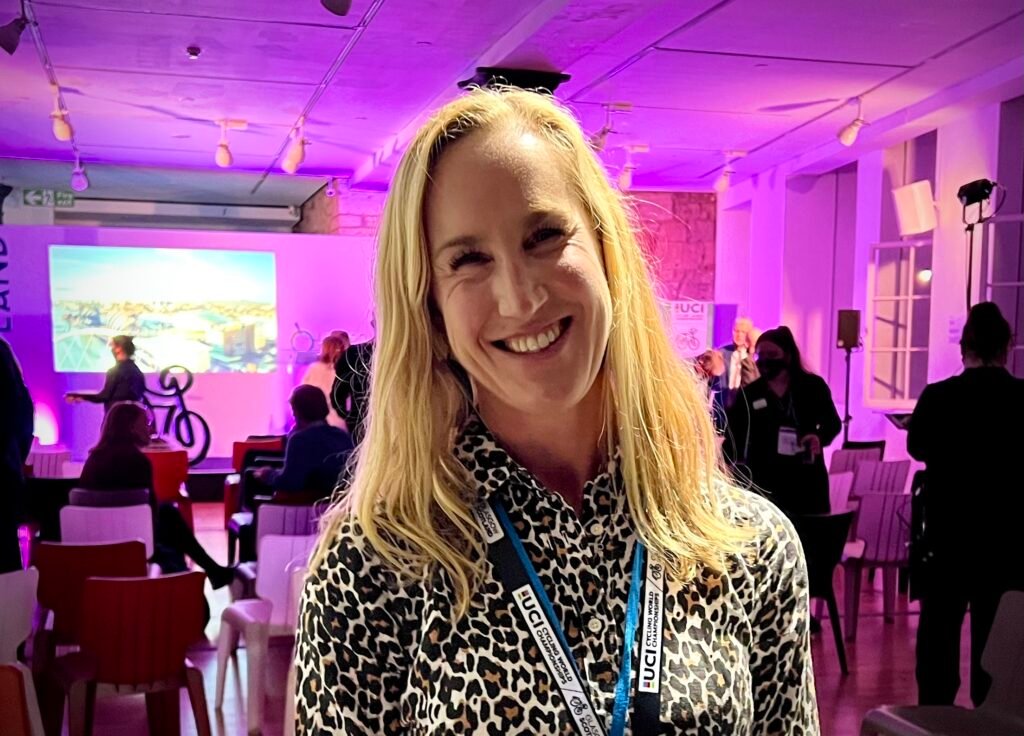
Heather Thompson 59:19
Heather Thompson for the Institute for Transportation and Development Policy.
Carlton Reid 59:23
However, you’re doing something here because we’re not any longer actually in COP26. We’ve now come across to a different part of Glasgow. You have been doing stuff at COP. So tell me what the ITDP has been doing. across there.
Heather Thompson 59:43
well, I have a number of things. So ITDP supports all parts of sustainable transportation. So we are a big advocate for public transportation, walking, cycling the development of compact city so also focusing on land use, which is fundamental to our sustainability mission, and also efforts that are kind of newer to cities, which makes driving private cars more expensive, less attractive so that people have the incentive to move towards more sustainable forms of transportation. And there’s a big emphasis here at the COP on electrification. So we’ve been trying to pull all of those things together, supporting the move to electrification, because we absolutely need to take fossil fuels out of the transportation sector. But we can’t focus on electrifying private vehicles alone. We have a new study coming out in just a couple of weeks in reaction to all of the emphasis on electrification at COP that shows that we will not meet our 1.5 degree target. If we focus on electrifying private vehicles alone, we need to focus on public transportation, walking and cycling, electrifying all the bus fleets out there in the world, moving to more public transportation, and again, making sure our cities develop in ways that are compact. So I’ve been here advocating for all of those messages, and trying to get decision makers at the city level to adopt those missions. And those those points, as well as advocating at the state and international level that these are fundamental to our climate change mission, but also to more equitable cities around the world. Most people can’t afford our private vehicle, they rely on public transportation, and we need to make sure that public transportation is reliable, convenient, safe, affordable for people.
Carlton Reid 1:01:40
Do you think cities are way ahead of national governments here, because when you only see the C40, all these kind of different meetings, they’re pretty radical and Anne Hidalgo. You see Birmingham in the UK, instituting loads of really positive stuff. And then you look at what happened nationally. And it’s very litrle. And you look internationally here, again, it’s just electric cars. That’s just the norm. That’s not that’s not anything quite radical, whereas cities, why are cities more radical, I guess, then then that national and international governments?
Heather Thompson 1:02:12
I think, absolutely, cities are more radical, and more and more cities are becoming more radical. And I think it’s because it’s, as we say, the transportation sector, it’s where the rubber hits the road, right? It’s where people where leaders actually have to look at their constituents in the eyes and see if they’re actually meeting their needs. And you can’t just make promises that you don’t actually fulfil, you have to you have to meet people’s needs, and people are fed up. Climate change is becoming more and more visible with weather events that that we see in front of us. And you know, we all know that air pollution is tied to climate change, and cities are becoming more and more polluted. Consumption is becoming out of control. So I think people just realise that, that they’ve had enough and they can look to their city decision makers or city leaders or city mayors for change. And that’s why there’s there’s more accountability, and we have more mayors that are actually making a difference in making the change, and hopefully, making the pressure go up to the state provincial level, and then the international level. So I think they’re, they’re beginning to listen, but yeah, there’s so much power at the city level.
Carlton Reid 1:03:29
So you’ve got Mayor Pete, who’s now Secretary of Transportation Pete, is that already making a difference on the ground that you’ve got a former city mayor, who’s now in charge of transportation, can he genuinely move the needle? Or is this so much stuff that’s going to just hold him back?
Heather Thompson 1:03:50
It’s such a good question. He’s been saying all the right things, and certainly advocating for the right things. But, you know, when you’re at the national level, there’s so many more politics than trying to get agreement within our Congress in the United States to actually put more money into the right infrastructure is a challenge. And one of the biggest challenges is that most of the money goes into highways that are not in the city centres. And we know most people live in the city centres, and he was a huge advocate for away. We call in many places Complete Streets. So thinking about public space, walking, cycling, making sure that streets are really built for people and not cars. He’s saying all the right things you’ve got, he’s advocating for the right things. We’re yet to have a decision to really put the money behind all that we have a great infrastructure bill. Hopefully that’ll be met with some other decisions that will that will support that as well. And then we have to put that money on the ground. So it’s still early days. And I really have high hopes that the money will come in the money really We’ll get to the ground in the way that it should.
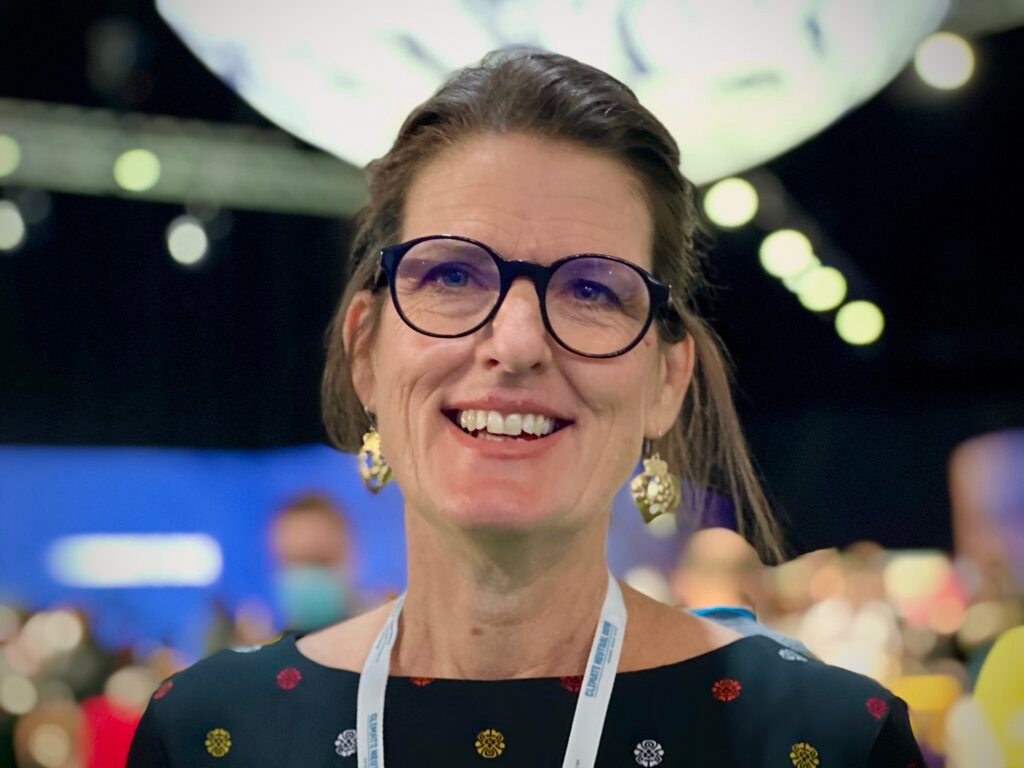
Bronwen Thornton 1:05:04
I am Bronwen Thornton, I’m Chief Exec of walk 21 and I represent the entire planet because everybody walks.
Carlton Reid 1:05:12
Everybody walks. I agree. It’s a transport mode. But we’re at the transport day and walk ing’s not on, cycling’s not on, buses, on, trains not on, the only thing on are cars.
Bronwen Thornton 1:05:26
It’s a pretty gross generalisation in the technical sense of the term because there are conversations happening.
Carlton Reid 1:05:32
It’s on the fringe, not on the agenda, not on that main policy.
Bronwen Thornton 1:05:37
It’s not in the headlines, it wasn’t a priority for the UK, government. Electrification is a priority for the UK Government. So vehicle centric tech, it’s, it’s the challenge in all these environments, but in, in the, the NGO world that I move in, then it’s very much you have to have a mixture of all those things you have to have, we’re not going to get there on Tech, we can’t wait that long, you know that we have to have it. And so I’m speaking this afternoon, quite opposed to sitting alongside aviation and maritime, you know, like that’s Living Streets had their session this morning, the words aren’t in the headline, but the conversations are there and the activity is happening,
Carlton Reid 1:06:21
How we’re going to move it up. So it gets into the headline into the into the actual gubbins of the policy that actually physically emanates from here.
Bronwen Thornton 1:06:33
Globally, or locally?
Carlton Reid 1:06:36
Globally.
Bronwen Thornton 1:06:39
So we are doing that all the time we have we are actually way putting out pathways, we have a whole set of global indicators with walking lens. So looking at the existing databases, from a walk in perspective, to see what does it say about walking globally, and to map that and to set some agendas around that walking is everywhere. It’s never going to be in the headlines. It’s not that high tech, high money, it doesn’t have any
Carlton Reid 1:07:04
You don’t electrify your feet do you?
Bronwen Thornton 1:07:05
You can’t. Well, they do have jetpacks and you know, all those sorts of things. I think Honda developed some robotic supports and things like that. I think I mean, the thing for walking and UK is a good example for this, where you start to get champions in cities, you start to put it on the political agenda. And you start to communicate the benefits and where we are working in the Global South. We’re focusing a lot not just on the co benefits, everyone likes to talk about those co benefits and their manifold with health and social cohesion and mental health. But there are transport benefits. I mean, it’s it’s a sensible investment to invest in transport. So Washington metro Washington did a massive study of this of their or their stations and their entire system to look at how they could improve their service. And the singular thing they did was improve walking access and cycling to save cycling access to their stations to underpin the ridership to increase their ridership. They actually did walkable catchment, it seems so basic to us, but they hadn’t done it when they built the metro. And not only did it improve their ridership, which improves their fiscal viability, but it also reduced their what they call paratransit costs, which is their private transport for people with a disability. So it made the whole system more accessible. But it’s a transport solution. It wasn’t a social solution or a health solution. And I am all here for the for the health benefits. But when we want transport to change the way the transport system works, we have to talk to them on those transport benefits because they don’t have the KPI for delivering health and who does done the new heatall Health economic assessment tool. And it’s you know, it’s, again, another big step forward. We’ve been involved in some of the consultation around that and actually quantifying those benefits shifting the paradigm about how what we value and how we evaluate in our systems and in our in our fiscal, you know, decision making. Because the cost, you know, we know, the cost of only having motorised travel travel, it’s not just about decarbonisation. If we only decarbonize as, as my colleague Ron Tolley used to say, if you get hit by a Tesla, it still hurts, you know, and it can still kill you. And it still crowds the streets and occupies far too much, you know, public space per person. Disposable costs, air pollution, you know, whatever line, whatever issue you want to carry, there’s good reasons to do something else. But even if you didn’t want to do it, for all those reasons, even if you didn’t want to do it for those reasons, you know, whether it be for children or old people or whatever, people are always going to be walking. We’re not going to stop walking, you know, we’re not going to be levitating. We’re not going to be, you know, doing all of these things, and we’re going to need it. Yeah.
Carlton Reid 1:09:48
So everybody’s pedestrian. You’re right. Yeah, at some point. So even motorists are our pedestrian. They’re
Bronwen Thornton 1:09:55
just pedestrians momentarily in cars. Yes.
Carlton Reid 1:09:58
So if everybody’s A pedestrian at some point. But a pedestrian once they’re out of that car then becomes potentially to run run over by by the Tesla motorist as you said there. So in Biden’s President Biden’s infrastructure acts that was voted through on Friday. There’s this little little chunk in there, hidden away about decolonization about transformers, because the driverless cars the future connected cars of now can’t see pedestrians they can’t see cyclists. They can see them envision maybe if you’re wearing a white noise, jacket, can’t see all of a sudden you’re wearing camouflage can’t see all sorts of scenarios where they can’t actually the current technologies, even the future technologies can’t see pedestrians. So the US government is funding, transponder style spotting of pedestrians, not the same transponders that are in the lampposts and getting junctions and stuff. So what would be your take on? If you want to be safe in the future, when you’re going to have to have one of these transponders otherwise, it’s your fault if you get hit by car.
Bronwen Thornton 1:11:15
See, it’s the tech solution again, and the assumption that that is going to be the dominant No, no, that’s a fair way off that as the dominant mode, look how long it’s taken, you know, for some of the other new technologies to come on board and as appealing as they are. And there’s two schools of thought around this one is that it will make the system safer, because cars will have to slow down, it will make it more dangerous, because you have to wear a transponder or people the segregation factor will start to come into play and the restriction on pedestrian movements that we saw, historically with fencing and which was, you know, done with alacrity, you know, here in the UK, just fenced them off so that vehicles can move more, it is a big challenge. And it’s not just the US the EU’s current call for proposals under the new horizon 2020 road safety agenda has wearable detection, you know, tech, let’s not call it art, or you know, so they’re also keen to pick up on the tech solutions. But when you look at the global, Lucky look globally, it’s very easy for us to sit here in the UK or look at the US and think this is going to impact everybody, but it’s not. There’s millions of people in Asia in Africa, who are walking every single day 70% of people walk in Africa for their entire journey. So while everyone walks in some respect, you know the volume of walking and they’re not going to have a visa and transponders anytime soon in a lot of those environments so we can we can keep getting high tech here. There’s gonna just have to be i My sense is that those type of vehicles and those types of systems will we be restricted to corridors like trains are restricted to corridors or light rail is restricted to a track
Carlton Reid 1:12:56
But then these corridors suddenly take over the whole blummin’ world just as roads did, and and motorways did.
Bronwen Thornton 1:13:01
Yeah, but railways did it. Railways were contained in corridors, roads is a free network, we’ve always had pathways and movement that’s roads is just part of that it’s just currently occupied by cars. But if you’re going to have something that can interact with the whole system, or bicycles, and people walking, and you know, all those sorts of things, then potentially we end up in that corridor situation. And it comes back down to one of the things that were, we were hearing a lot in the different conversations around. And I think it was on the Saturday conversation with the World Health, climate and health meanings and different people are saying, it’s so much comes down to negotiations of space, where do you put bike lanes? Have why’d you make the footpath, who gets the dominant, you know, the priority in the space, and they’re just their choices that we’re making. And it doesn’t automatically follow that what we currently use that space for will be how we use it forever, you know, just as we, you know, cities were built for human movement. So there was more like Medina’s and things like that. Then we got you know, horse and carriage the streets got wider, and then they got longer and it goes, and these things are evolving all the time. So I could be disheartened or I could be hopeful. And you essentially you feel both, don’t you about this sort of agenda, but it’s still choices that we can make as cities and as citizens about how we use that space in our cities.
Carlton Reid 1:14:18
We’re a bit of a an active travel huddle.
Bronwen Thornton 1:14:21
No, we just suddenly …
Carlton Reid 1:14:22
An active travel huddle. So how do you get on with those guys, those those those pesky cyclists over there? Do you like them?
Bronwen Thornton 1:14:31
Well, she’s a lovely, pesky cyclist [pointing to Jill Warren].
Carlton Reid 1:14:34
Okay, not Jill, how about if she was wearing Lycra, and she was doing 40 miles an hour?
Bronwen Thornton 1:14:39
That’s like saying how do we get on with drivers or train riders or any of those sorts of things? I won’t get into that. Ask him there my argument with you about it at all we have with both parts of the ecosystem. They are we are absolutely all part of the solution
Carlton Reid 1:14:52
Snd sort of coming together and becoming more powerful. If you join and you join with buses. Yeah, so we missing actually made that up on the hoop before the coalition of the missing is what I’m going to describe this is so so I think I’ve interviewed you ITP. Here missing from this conference from the agenda cycling, missing walking missing. So if you’re coming together with public transport and with cycling and with with walking for transport, is that something that has potential for change? Not here, we know not here. But in the future, maybe
Bronwen Thornton 1:15:31
yeah, of course, that is that is the ultimate combination that we need, because as much as we love cyclists, and we’re very happy that they’re part of the mix, we actually want to place a working relationship with public transport, when we talk about decarbonisation is public transport trips that we’re walking can make a stronger contribution. And public transport is a journey extender for a walking trip. Whereas a cycling trip is a different starting point you get on a bicycle, you leave your home, but a public transport trip you get on you leave your home on foot, you travel on public transport for a short journey, or for a long journey, and then you walk again at the other end. So that is definitely the combination that has to be the starting point for the the truly sustainable in all the senses of the term, not just carbon emission sense of the term. But in all senses in terms of usage of space, public health, you know, commercial realism, people don’t shop inside their cars, despite the prevalence of drive through coffee shops. Now, when I saw in Canada all those years ago, it’s just like, you’ve got to be joking. But there it’s minus 29 outside, so you can forgive it marginally. So it is the Nexus that is the thing that is and there is a lot of strong dynamics around that. We’re not entirely missing from this event. We’re not the headline story. We’re not the electric cars, we’re not that person, we’re fine about that. But we are in the conversations and outside this particular version of COP, there is so much good work going on, on these agendas, you know, elsewhere. When you when you look at what countries are doing when you look at what Ireland Ireland is our pinup child at the moment, I’m putting in a ruthless plug because wall 21 is in Ireland next year. But you look at the political commitments that Ireland has made 20% budget and split evenly between walking and cycling. That’s a million euros a day they need to spend for walking and cycling. That’s a commitment that’s translating into change on the ground and changing the way that they they govern their systems to deliver that to to one public transport versus motorised travel, you know it. This is the stuff this is the political commitment. This is the translation of what we need. And when anyone I just sat in the session with Living Streets and people there said, Yes, of course, it’s not for everybody. And I must admit I’m really tired of hearing that. Of course, it’s not for everybody. driving cars is not for everybody. But we don’t say that when we talk about driving cars, we say oh yes, we understand people that are walking, you can’t go very far. And of course, you can’t go very far. But you can go most of the journeys we do, can be done by walking or with a public transport, you know, extender, we always find this way of downplaying and dismissing, you know, the general public transport this or cycling that, you know, and this delusion, the car travel is is a freedom thing, this is the thing that I really like I just like, we all need a car, I’m not a car free person, I’m not in the car free zone. Here, I have four children, dogs and holidays and things I’m fine about their place in the system. But the thing that I always feel is car, people in cars deny other people the choice to walk, deny them, the opportunity, deny them the freedom to walk and cycle. And that’s where their choice and their freedom isn’t a true freedom because it’s unsustainable, because it’s taking away that freedom and choice from from other patrons and
Carlton Reid 1:18:48
equity. Yes, yeah, absolutely. Reason why it should be here, walking should be here. And cycling should be here, these modes, you know, the majority modes of transport in a global
Bronwen Thornton 1:19:00
time. So ITDP launched the Global Cycling challenge yesterday, cycling is here, they launched this, they’ve got cities all over the world. They’ve got, you know, all sorts of partners on board making and talking about walking. So even if it’s not making the headlines here in COP, there is a lot happening outside, you know this one moment in time. And these are really critical moments, no less than to just have opportunity to sit and talk to people in real life like we are doing. But they’re not the only moment. And the most important moment right now is to get some of those commitments. You know, there’s all these agendas and copper, and I’m fine for all of that. But But around all of that around that centrality of ministers and things. There’s so much good work going on. And there’s so much change evolving and happening in cities. When we when we look from where we are, what 21 to 21 years old. The difference between now and 20 years ago is is immeasurable. It’s extraordinary. And we saw a graph the other day we’re doing some review of research bibliometric studies Have walking research. And until the year 2000, it was pretty like low flatline. And since the year 2000, it’s like this bit like global warming, it’s a bit of a worry what we’re mapping there,
Carlton Reid 1:20:10
A hockey stick.
Bronwen Thornton 1:20:12
But it’s doing this is general and we are about we part of a programme that’s going to launch for Research Education Foundation is launching a research programme into walking only, not walking and cycling, not active mobility, not collective nouns which obfuscate meaning walking as a mode of transport, because it’s the it’s not the underdog, but is the under under studied. And so it’s really exciting. They’re launching a whole research funded research programme, to grow the agenda. And what we always think is so critical. It’s not just that there’s lots of knowledge out there, it’s translating it into action, which we all know, is the big challenge. And so through things that we work, I chair, the African network for walking and cycling. And we have a working group there on the nexus between research and action. And how do we translate that and how do we do that? So I, I’ve come to cop here. I live in the UK, it was a lovely train ride. But I don’t invest everything in this moment. It’s an important moment, but it’s not the only one. And there’s so much good stuff happening elsewhere, and growing agendas and things like that, that I’m uncomfortable with that.
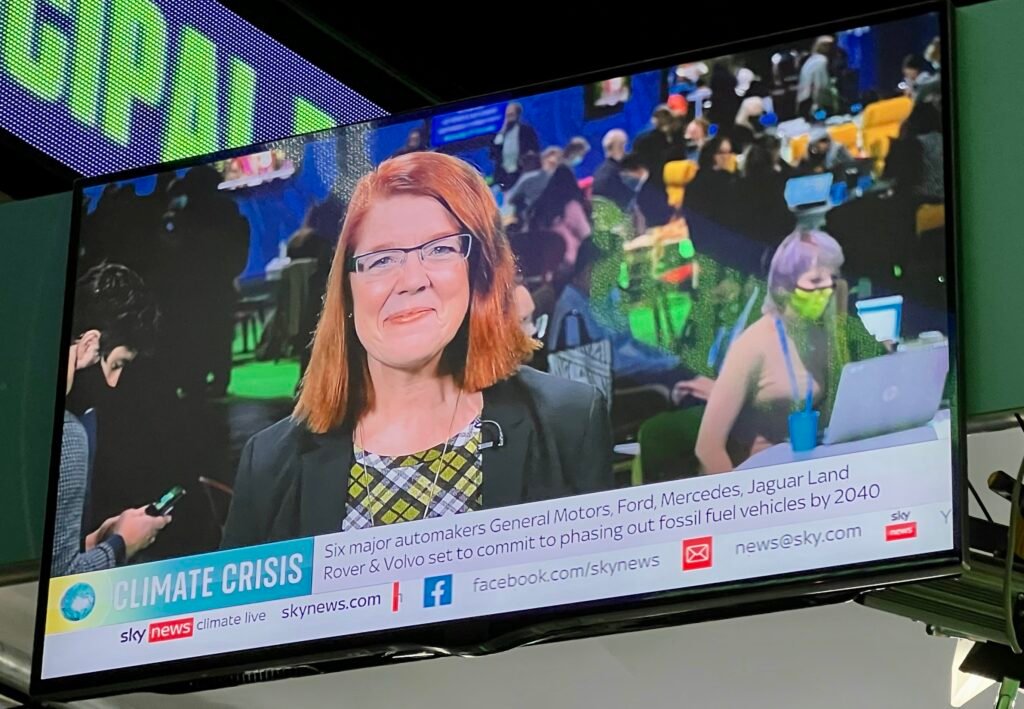
Jill Warren 1:21:19
Hi, I’m Jill Warren. I’m the CEO of the European Cyclists’ Federation. We are the umbrella federation for cyclist organisations from all over Europe, we have about 70 members in over 42 countries
Carlton Reid 1:21:32
And Jill where’d you come from? And that’s geographical and your career.
Jill Warren 1:21:38
Yes. So I’m American originally, but I have lived for over 30 years in Europe. I’ve spent time in Germany, Belgium in the UK, currently based in Brussels with ECF. And before joining ECF, at the beginning of 2020, I had spent 20 years in international law firms in Europe.
Carlton Reid 1:21:56
Why did you get into this job?
Jill Warren 1:21:59
Well, it’s it isn’t a million miles away, because law firms lobby for their clients. And there, they absolutely represent their interests in every way you can think of and also in a lobbying sense. And so I was quite familiar with that having worked in Brussels for major international law firms and seeing how they advocated for their clients interests. So I was always a very passionate cyclist. I mean, I never went on holiday unless I can take my bike with me. And being able to combine that, you know, into a career I really love has been an absolute dream.
Carlton Reid 1:22:32
Jill, you’re a media superstar already, because I just saw you on Sky News. Fantastic. What were you saying to Sky News?
Jill Warren 1:22:39
Well, I was talking about how we would very much like to see cycling have a prominent role in these discussions as the solution with potential that it is yeah, instead of all the focus being on the electrification of vehicles.
Carlton Reid 1:22:53
So I’m pleasantly pleased that they’ve interviewed you surprised that they’ve interviewed you because they found you and got you on. So what was their line of questioning? Was it totally see, I can see what you’re saying, but was it totally serious? You were taken seriously?
Jill Warren 1:23:11
I think the catalyst was this joint letter that we initiated, in in the run up to the COP, when we saw that, you know, all of the papers coming out seem to be focusing on the electrification of vehicles, we thought that can’t be we really need to call that out and talk about the need for the leaders here to recognise cycling and to fund it and have policies that will enable more cycling, because it’s a solution that’s available. Now. It’s a solution that, you know, it also has an electrification element e bikes have absolutely changed the scope out there in terms of opening up cycling to people of all ages and abilities. And, you know, it really is a solution that can replace car trips, given that most car trips in Europe are less than five kilometres. So the potential is there. The technology is there. We just need the political will the courage and the funding.
Carlton Reid 1:24:02
Absolutely. Now, it’s great that Sky News have interviewed you. However, it’s not on the agenda. So as many wonderful interviews that I’m sure you will really be doing. TV just just now. All fantastic. All we need all of this. But if we don’t physically get on that all important agenda. It’s like it’s kind of hot air, Jill.
Jill Warren 1:24:26
Yeah. Well, I, I appreciate your point there. But I do think it’s been great to speak to some ministers here to really get our letter in front of them to raise the awareness further, I do think that a lot of them are more progressive than maybe the rest of their governments are. We know that cities are more progressive than their national governments are that their citizens are even more progressive than the than the city leadership is. So we really feel like the people are on our side on this and we just need to keep fighting our fight to get it higher up the agendas and on the agendas stuff. That’s more action is taken, and it’s it’s funded, we have the policies, the funding, all the political will and everything that we need to really turn more of our cities and towns into cycling cities and towns.
Carlton Reid 1:25:12
So Henk was saying before about somebody was complaining about incrementalism. But you could look at this maybe getting onto the next COP agenda, incrementalism in that you’re not here, you’re not on this agenda. But you’ve kicked up such a fuss and garnered so much support, that the next COPs will be totally blown out of the water if they haven’t got walking, cycling, bus, train, because these are these are modes that is like, how could they have missed them?
Jill Warren 1:25:45
They are used by millions of people every day and the potential for millions more and it is such the solution, we need to a lot of the emission of you know, the rise in emissions coming from transport over years. I mean, that’s one area that’s been really tough to crack, it can be cracked. I mean, we saw in the pandemic, how quickly you can make, you know, cycling, enabling infrastructure. You know, overnight, you can make a street car free, you can turn it into temporary cycle lanes or low traffic neighbourhoods or slow streets. And you know, that’s a good start. Now let’s let’s do that, then let’s make this permanent. Let’s, you know, people don’t really want to go back to the way it was before when you’ve done something like that. So we just need more action.
Jill Warren 1:25:45
They are used by millions of people every day and the potential for millions more and it is such the solution, we need to a lot of the emission of you know, the rise in emissions coming from transport over years. I mean, that’s one area that’s been really tough to crack, it can be cracked. I mean, we saw in the pandemic, how quickly you can make, you know, cycling, enabling infrastructure. You know, overnight, you can make a street car free, you can turn it into temporary cycle lanes or low traffic neighbourhoods or slow streets. And you know, that’s a good start. Now let’s let’s do that, then let’s make this permanent. Let’s, you know, people don’t really want to go back to the way it was before when you’ve done something like that. So we just need more action.
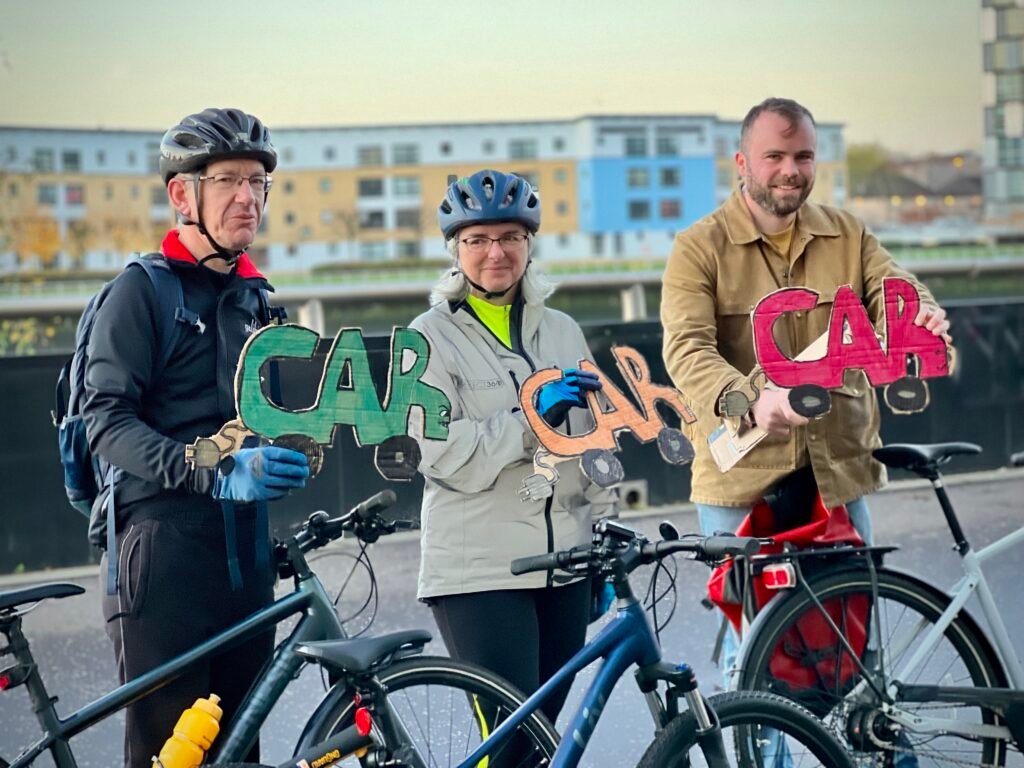
Carlton Reid 1:26:28
So Greta, has got blah, blah, blah. And that’s cut through that. Absolutely cut through those three words. So the advocates, outside bicycle every morning, had car car car,
Jill Warren 1:26:40
I had my picture taken with them, it was fantastic.
Carlton Reid 1:26:43
As soon as I saw that, I got to get a photograph of that. That is totally brilliant, you know, going for the zeitgeist. But the car car car element comes in in that an awful lot of the delegates here, some are coming on buses. But then you see on social media, the photographs of fleets and fleets of non electric cars, even though they’re like electric SUVs, shuttling them. And treating politicians are probably in part. So is it just a mindset, it’s just we live on an an automobile dominated planet. And so there’s no hope of getting cycling, walking. Because not even the delegates are using these modes. It’s just everybody. The people who are here during the negotiating are actually car based people.
Jill Warren 1:27:28
Yeah, well, I think that’s true to a large extent. But I do think we have some leading by example. things out there. I mean, look at the Prime Minister of the Netherlands who regularly is seen on a bicycle, he’s not the only one, you’ve got Deputy Prime Minister’s in Belgium doing the same thing. I do think more of our leaders are in favour of this kind of active, sustainable transport. And, you know, certainly Boris Johnson, I mean, he needs to put his money where his mouth is, but but but you know, he is one that’s, you know, famous for the Boris bike. I mean, you have to give them that. And so, I think being a politician at that level, you’re in a bubble anyway, which you’re going to travel in convoys, and all of that kind of thing. So So leaving that aside, I do think you’ve hit a point that the people making the decisions, you know, how are they travelling? And what’s important to them? And, you know, how can we break through that maybe is,
Carlton Reid 1:28:24
that’s why it’s good to see you on Sky News, because maybe in previous years, it would have been well, yes. Like, who cares about cycling, that’s, that’s even the kids or people or people who are not serious. But now you’re being interviewed. I know you’re a serious person. But you’re being interviewed as a serious person, is that a change? You notice that changing?
Jill Warren 1:28:48
I’m sure that there is a change there. I think that we are being taken more seriously, we’re not just these fringe hippie, you know, cycling advocates, activists or something. I think that our voice is being heard maybe more than it was before. And we practice evidence based advocacy, we can show you exactly what that potential is and what you get. If you make your cities more cycling friendly. You don’t just get the emission benefits, you get so much else you get the livability, you get the health benefits, which are absolutely enormous. You know, these, these add up to over 52 billion euros in economic benefits a year in Europe. And, you know, we can show you well, you know, everything that that brings, so we are serious people and we mean it
Carlton Reid 1:29:33
and you’re also partnering with with serious people. So you’ve got like the joint letter that you had, you’ve had new UITP yes signing which, again is very, very good thing to see and progressive because it’s it’s a coalition. Yes. And it boasts a coalition of the missing. Yeah, because you know, trains aren’t here. buses aren’t here, walking site here site and so you’re all kind of in the same boat. That and that you’re you’re missing from from COP. But do you see these partnerships being very positive for the future?
Jill Warren 1:30:09
Absolutely. And I think they’re powerful. We are natural allies, what we want. So for example, when we got together a coalition to lobby for the EU sustainable and smart mobility strategy, what we said was, we want active mobility and public transport to be prioritised, as, you know, the backbone and the modes that we need in our cities. You know, with everything else, back in line behind those modes.
Carlton Reid 1:30:38
And what about because we’re talking about buses there? And you ideally, what about walking? That’s a mode that people not walkers on transport.
Jill Warren 1:30:48
Yeah. It’s something that people tend to forget in that sense. But I would absolutely say that, you know, walking and cycling are at the top of that hierarchy, then you’ve got public transport, then you’ve got everything else.
Carlton Reid 1:31:02
You’ve said that, again, it’s there is a hierarchy, even the car beside the UK, there is a hierarchy, where walking and cycling are actually at the top. So if you’ve got a template of a transport day, surely the UN and the UK Government will go on, let’s look at the hierarchy. Right cycling the walk and put them at the top. Yeah, we’ll have cars right. But it’s not it’s the other way around the hierarchy. The provision has been flipped.
Jill Warren 1:31:30
Yeah. Well, I think it’s less than a hierarchy being flipped and more of what is the most comfortable solution for our leaders. The most comfortable thing is something that looks like the status quo, and electrifying conventionally fueled vehicles is basically let’s change the status quo a little bit. That’s as you know, little disruption is possible. And you know, the the car makers who are the most powerful lobbies I can think of, you know, are happy, everybody’s happy and jumped on. But you know, we’re here to say no, you know, you really need to pay more attention to the things that can make a much bigger difference.
Carlton Reid 1:32:06
Thanks for listening to Episode 286 of the Spokesmen cycling podcast. And thanks also to everybody who allowed me to grab them in Glasgow. Some of these interviews made it into my news stories from COP26, published on forbes.com. Search for Carlton Reid if you want to read them, and also search on YouTube for a video I made on my trips to COP26. I travelled there by bicycle first and then arrived for transport day on a sleeper train from London. I’ve embedded that video on the website for this podcast, too. And that’s at the-spokesmen.com I hope you think the extra long show was worth it. But I also don’t plan to make a habit of such lengthy episodes in the future. There’s another show due at the end of the month. Meanwhile, get out there and ride!
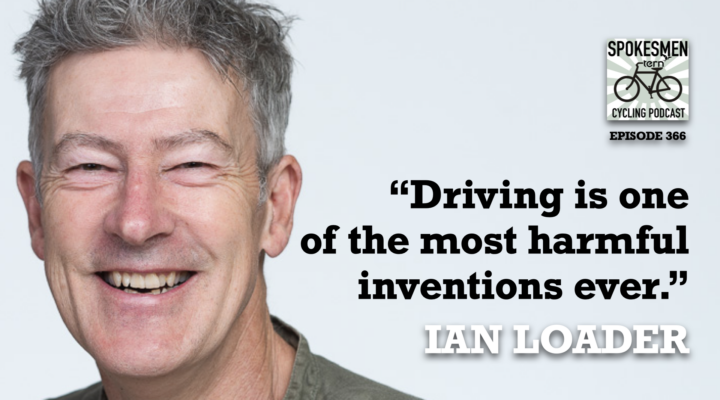
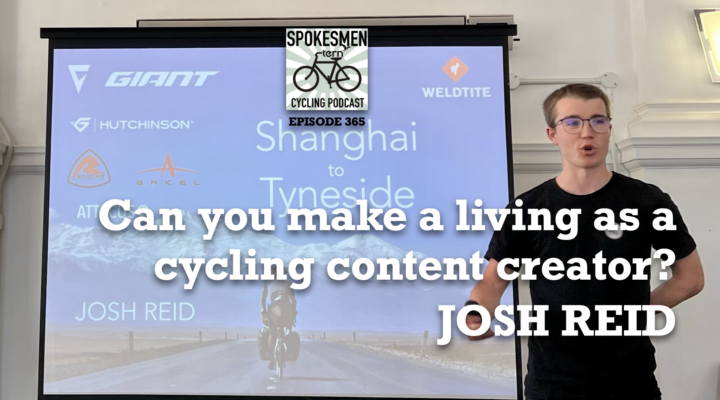
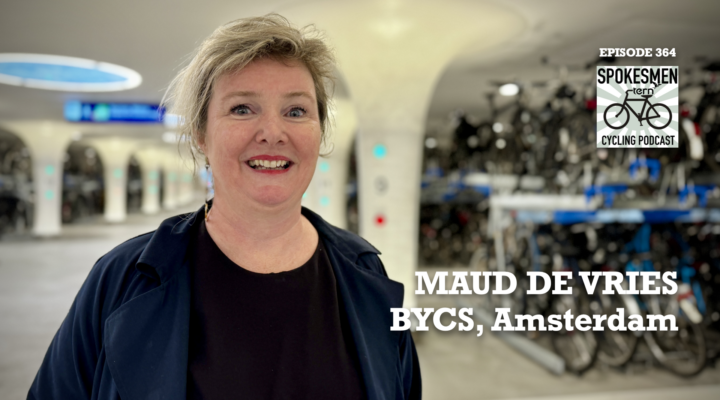
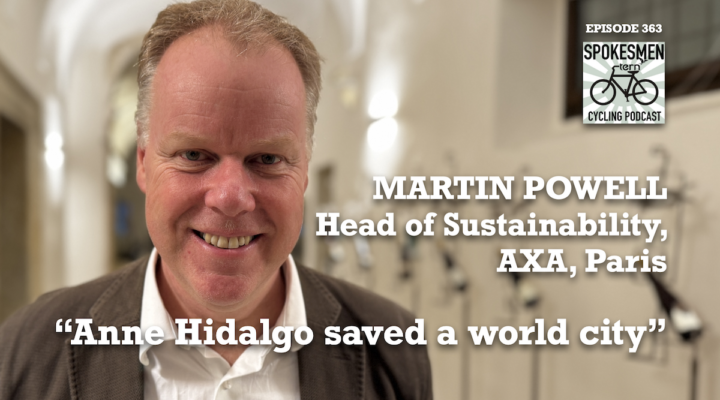
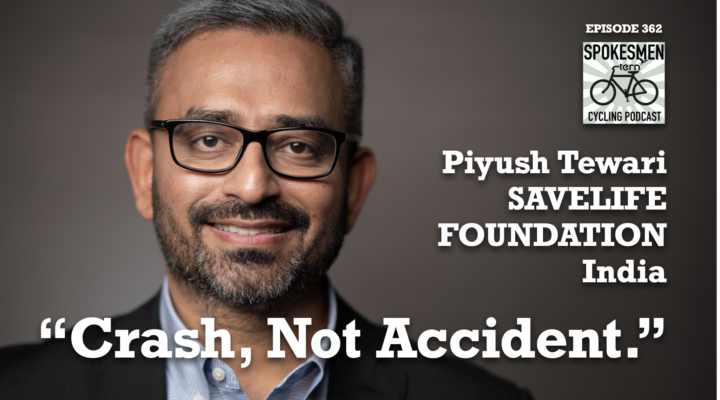
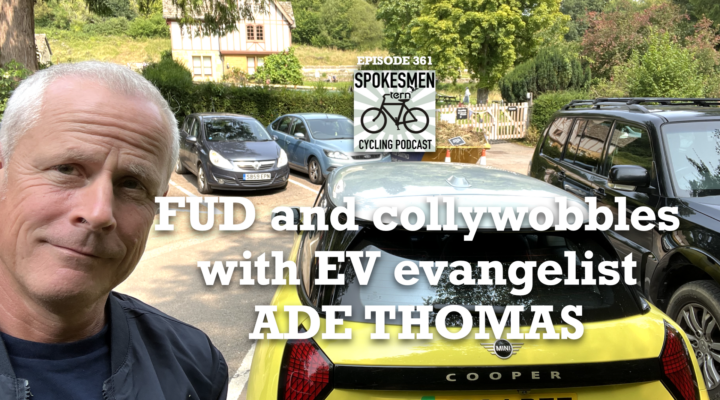
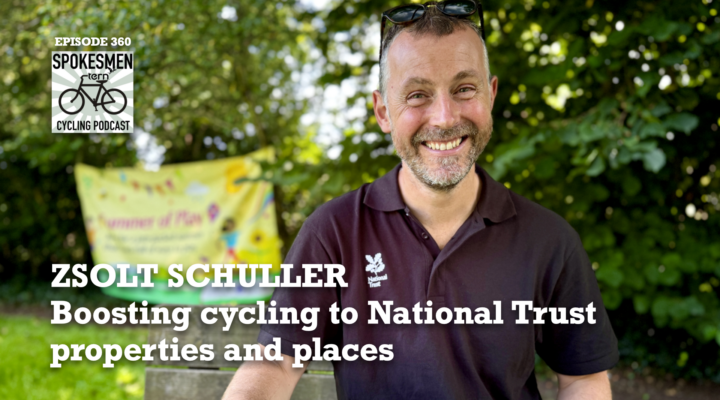
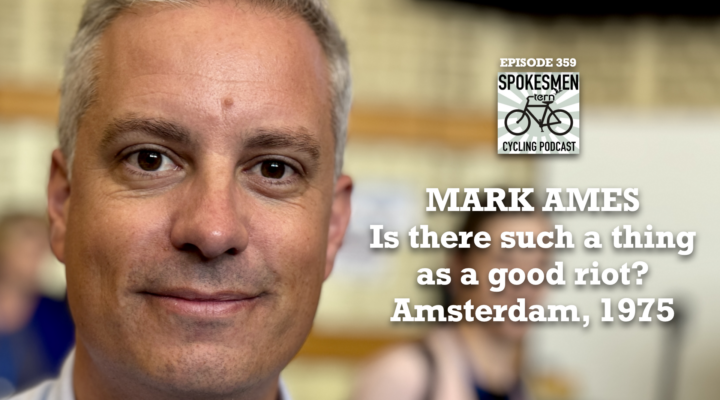
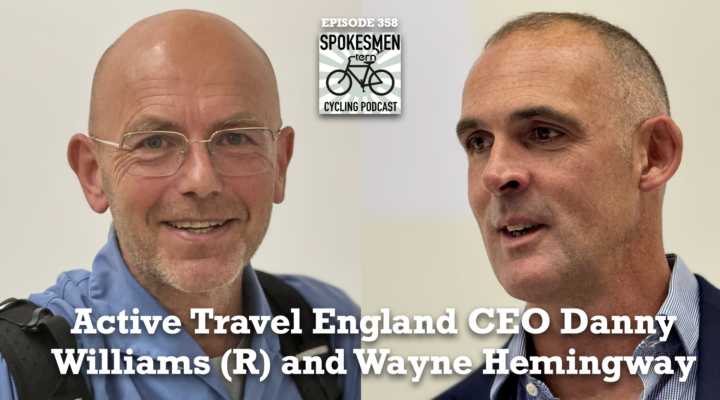
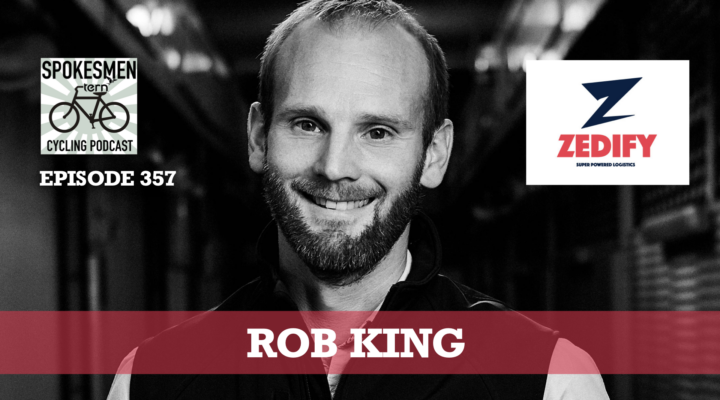
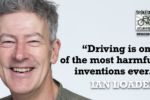
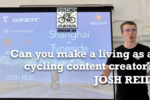
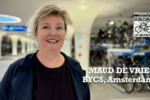
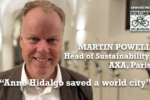
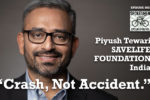
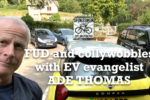

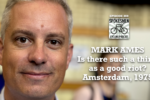
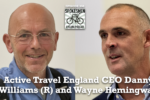
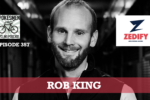
Be First to Comment